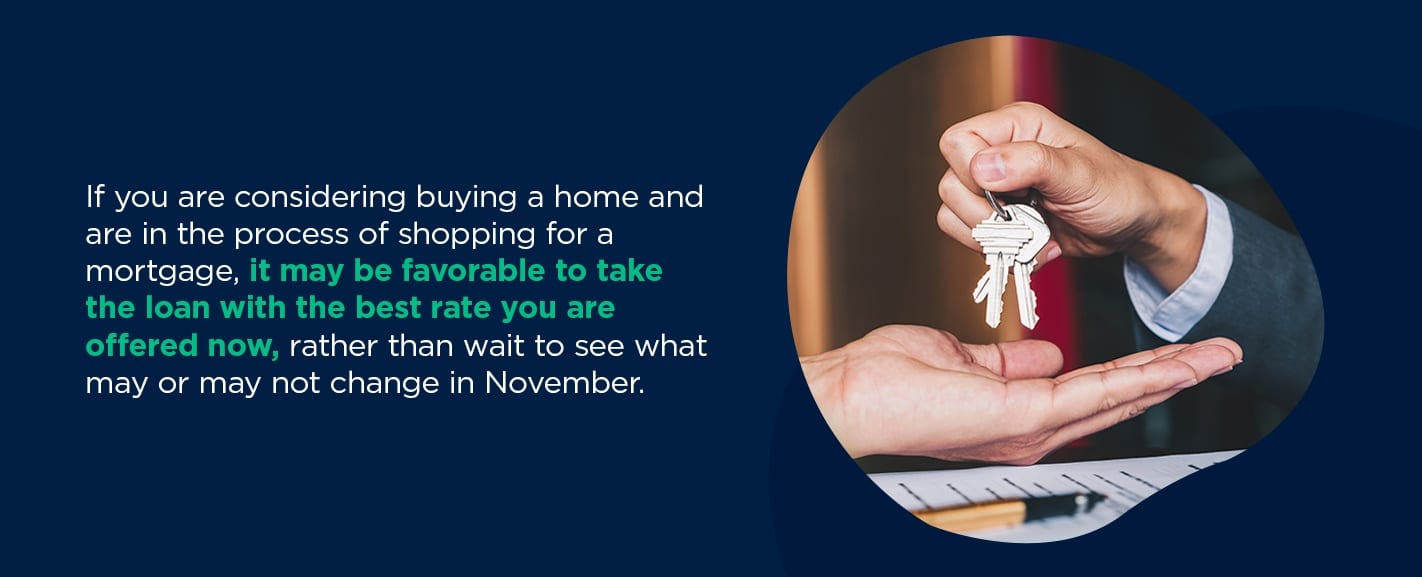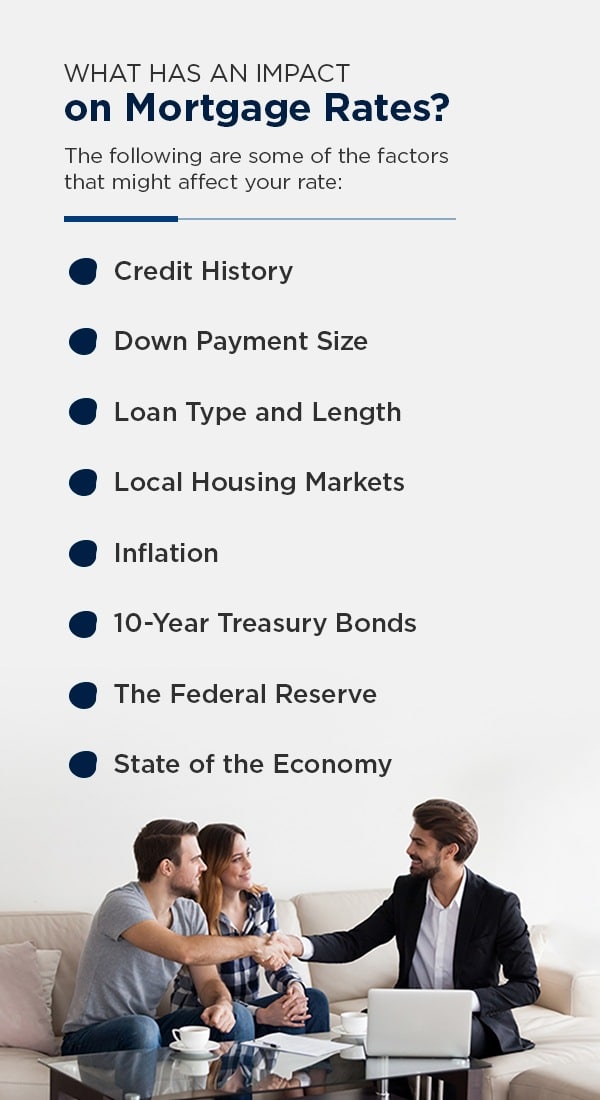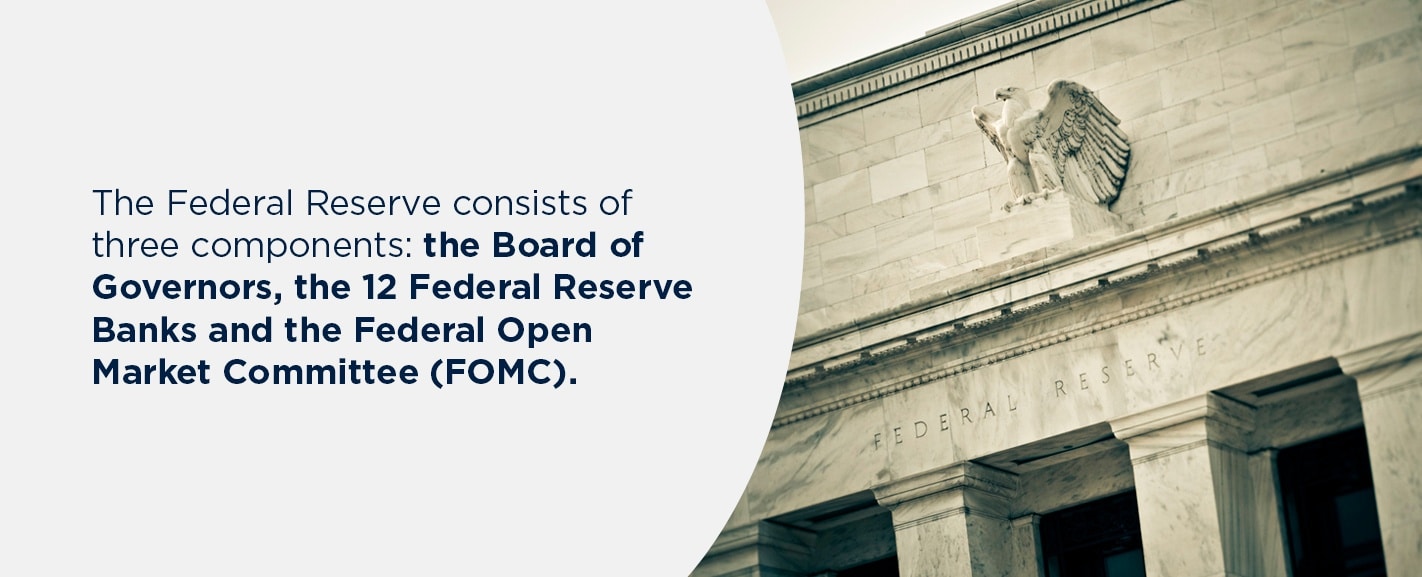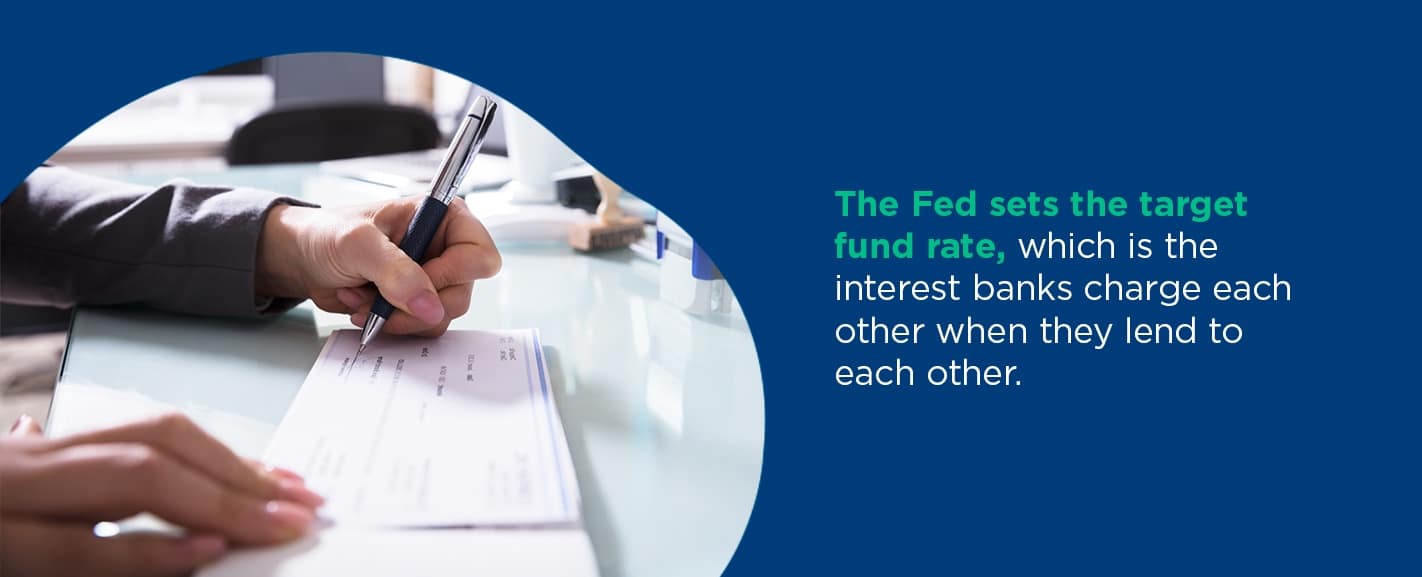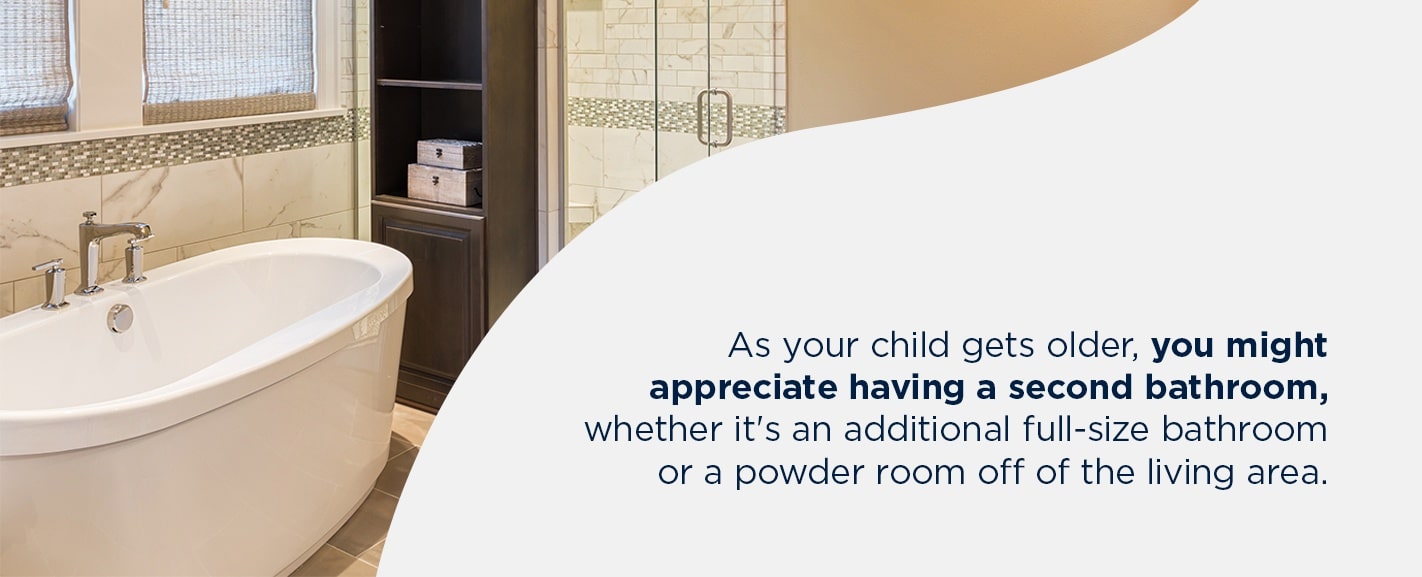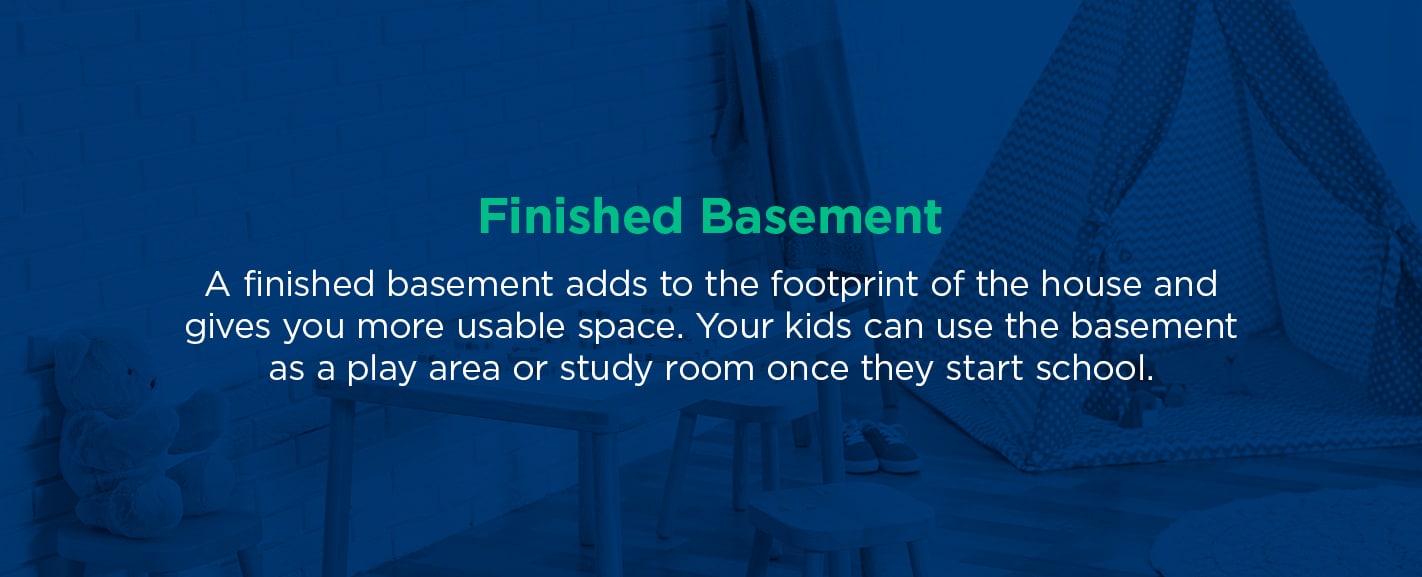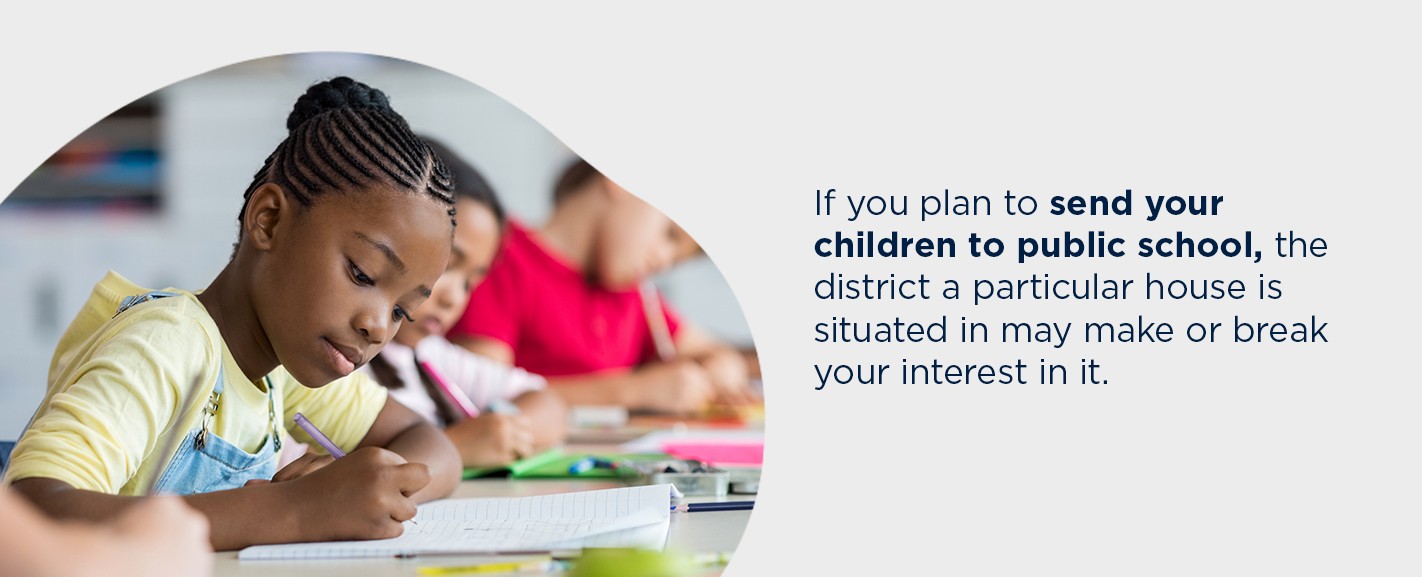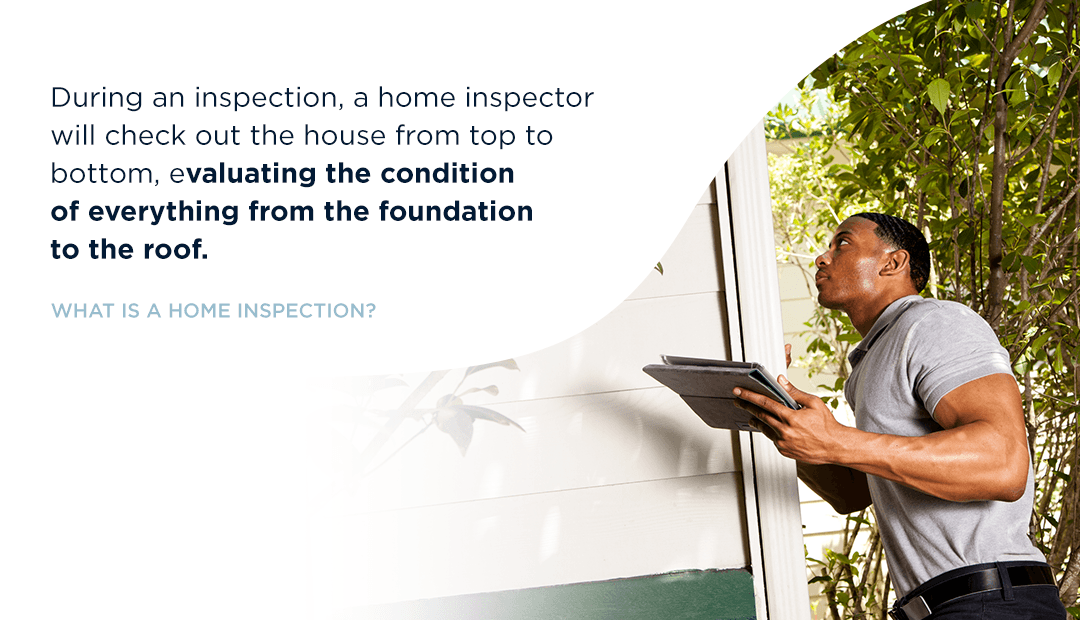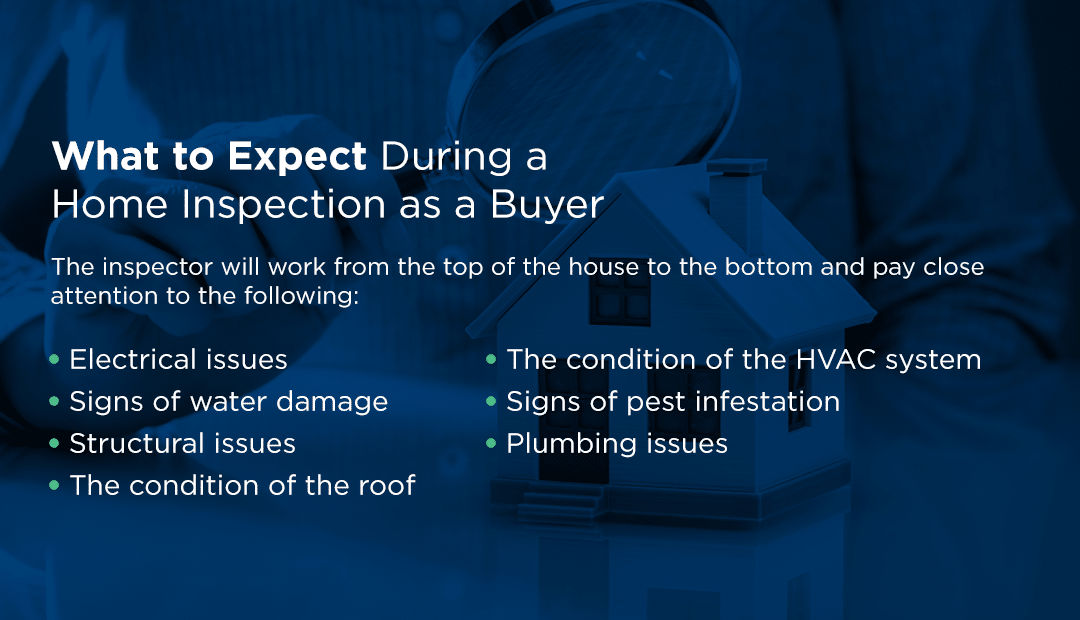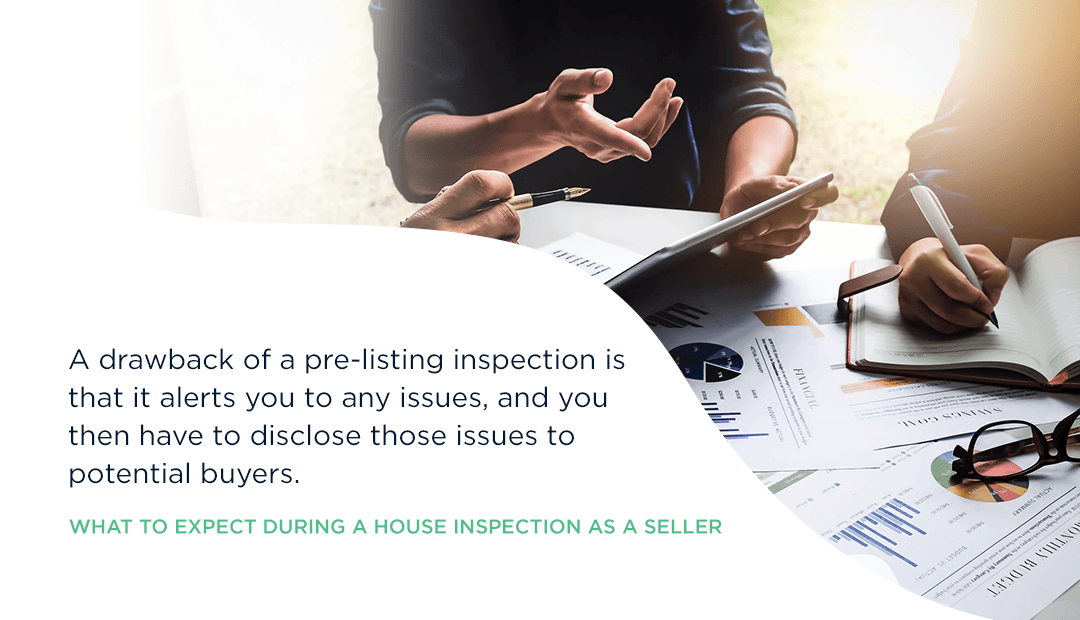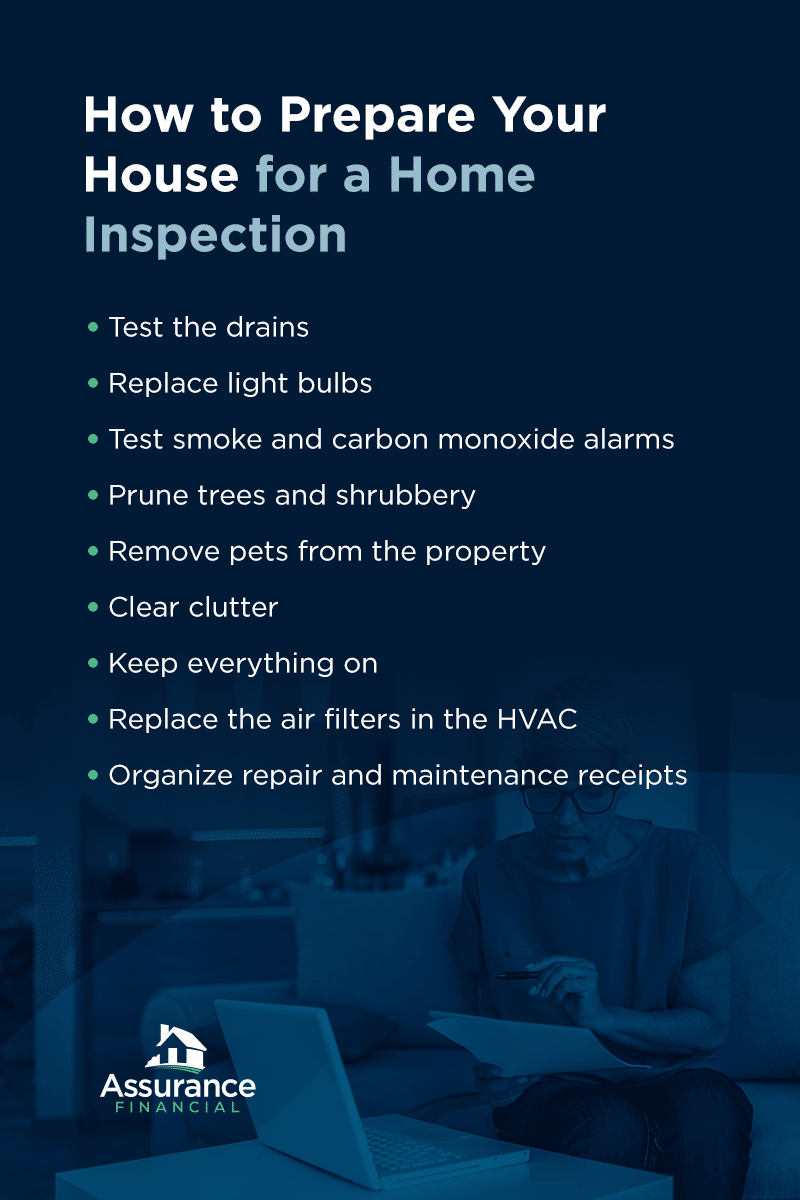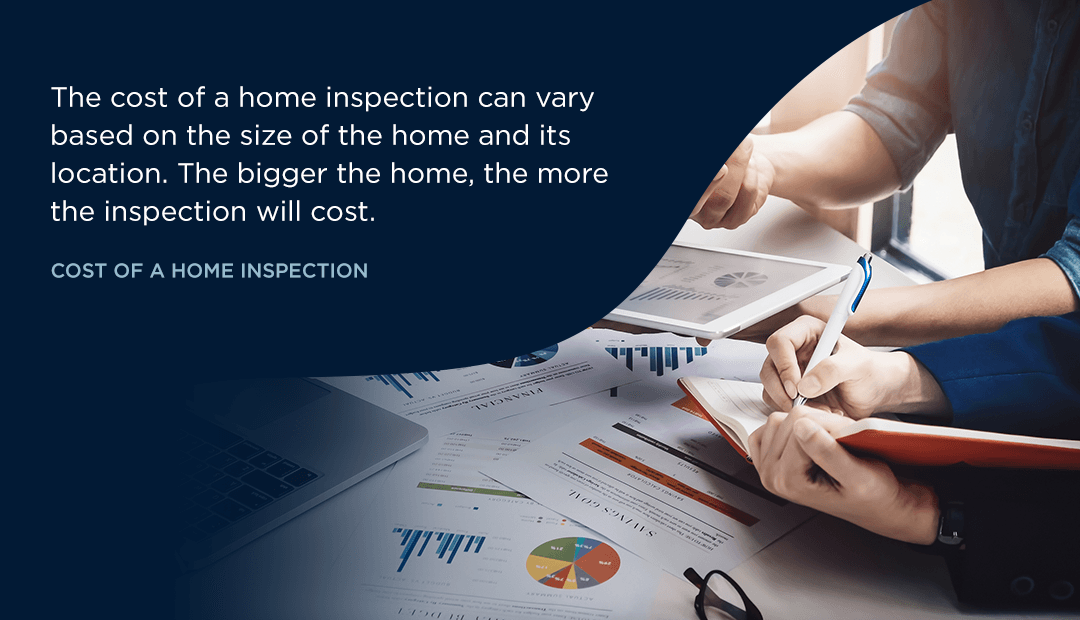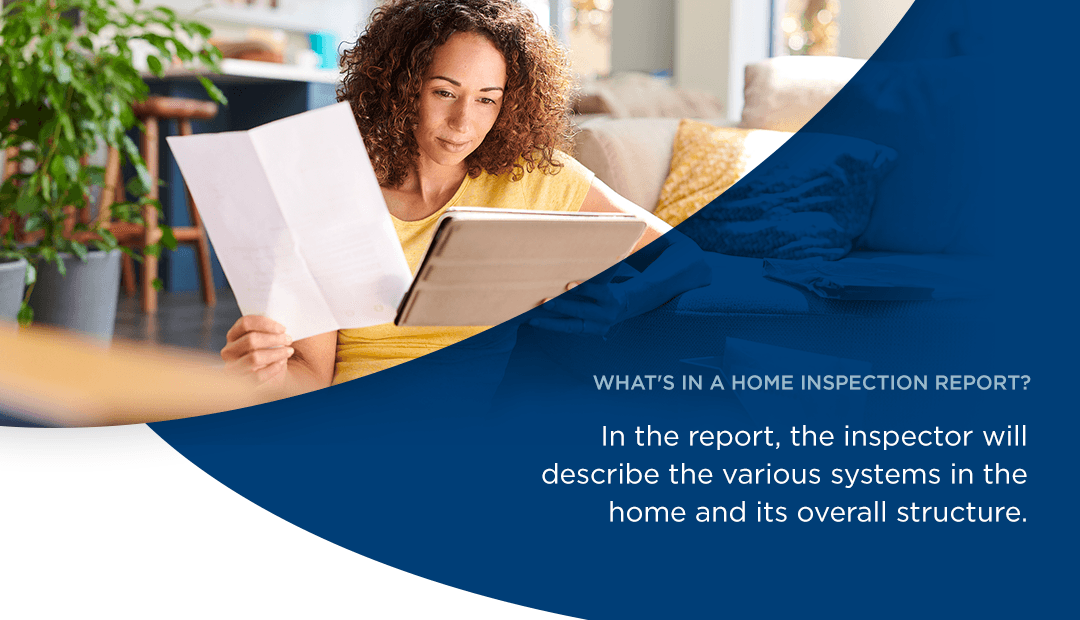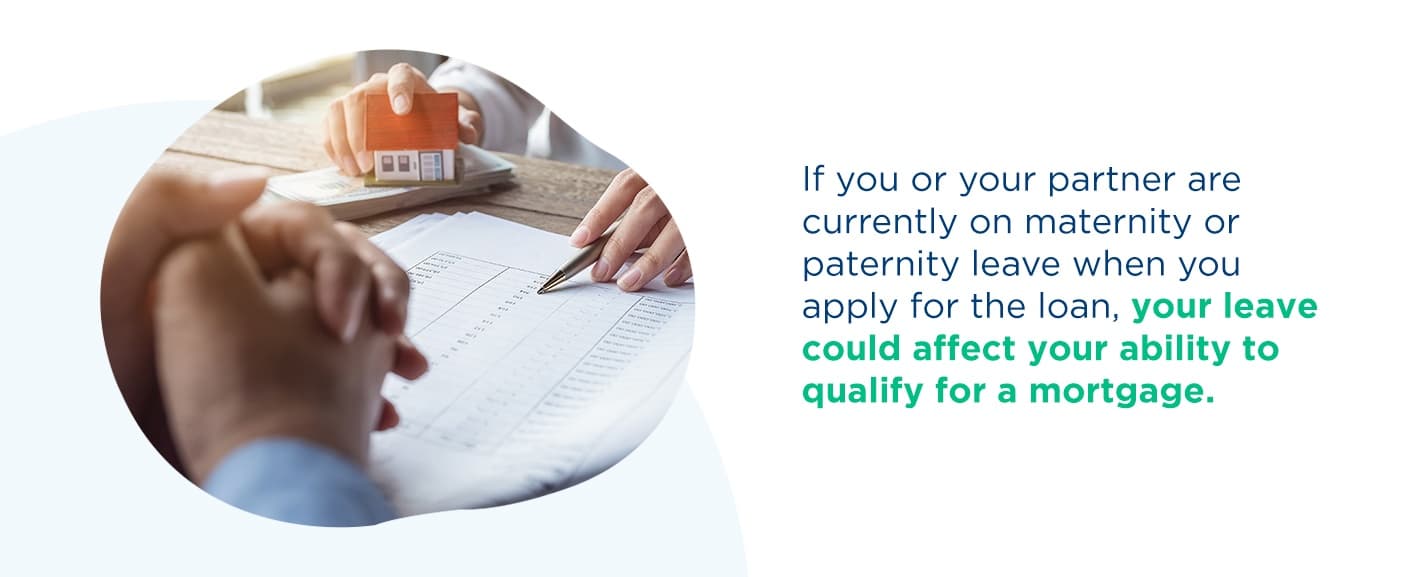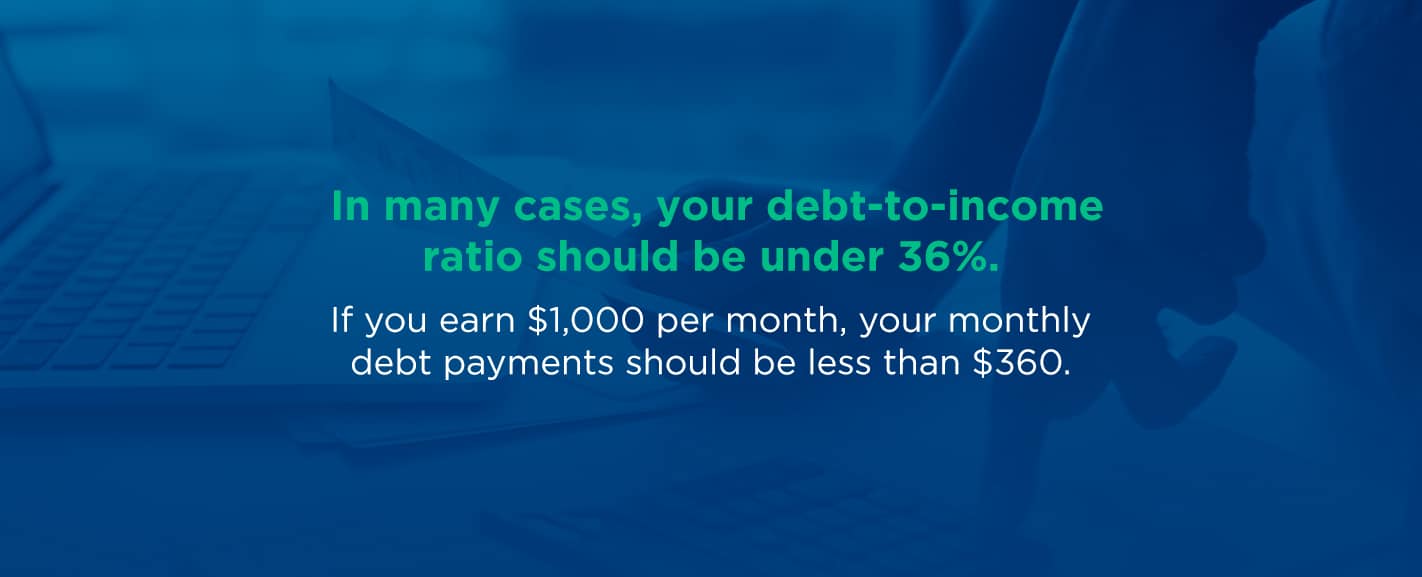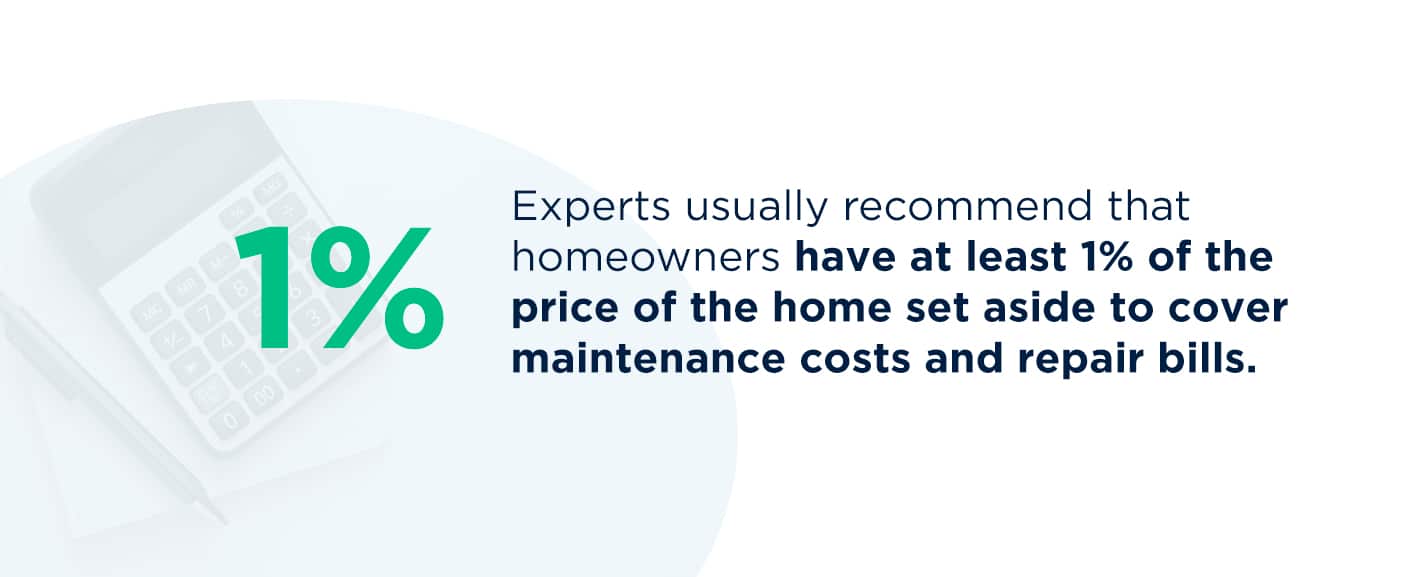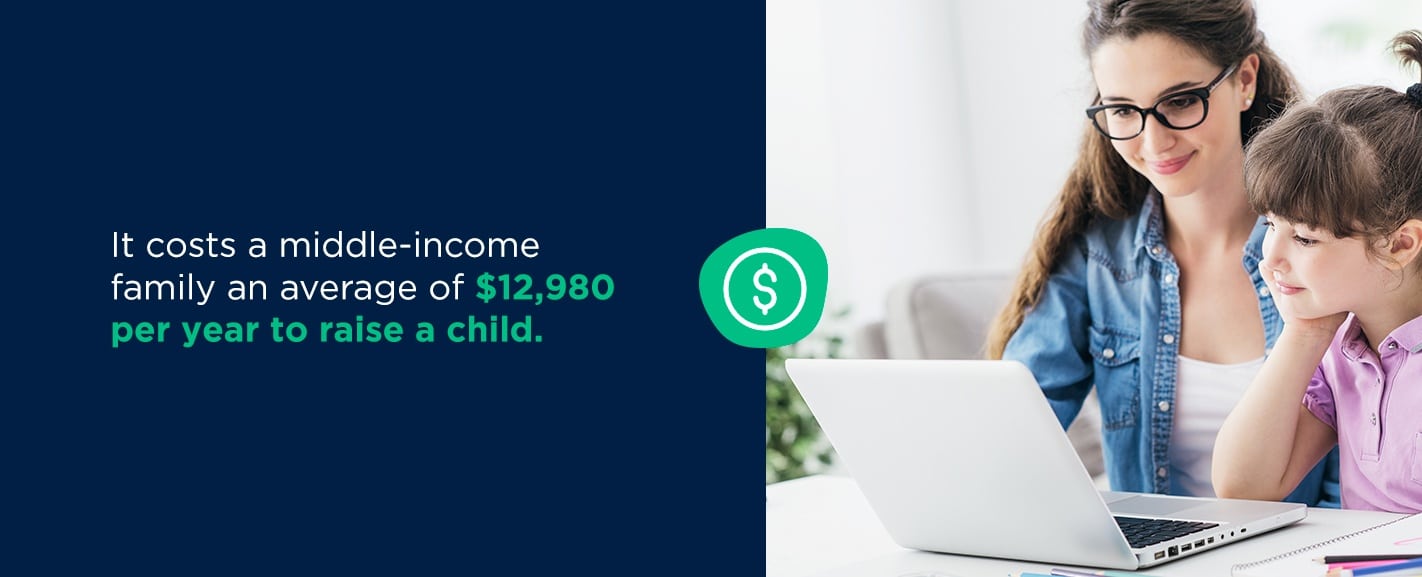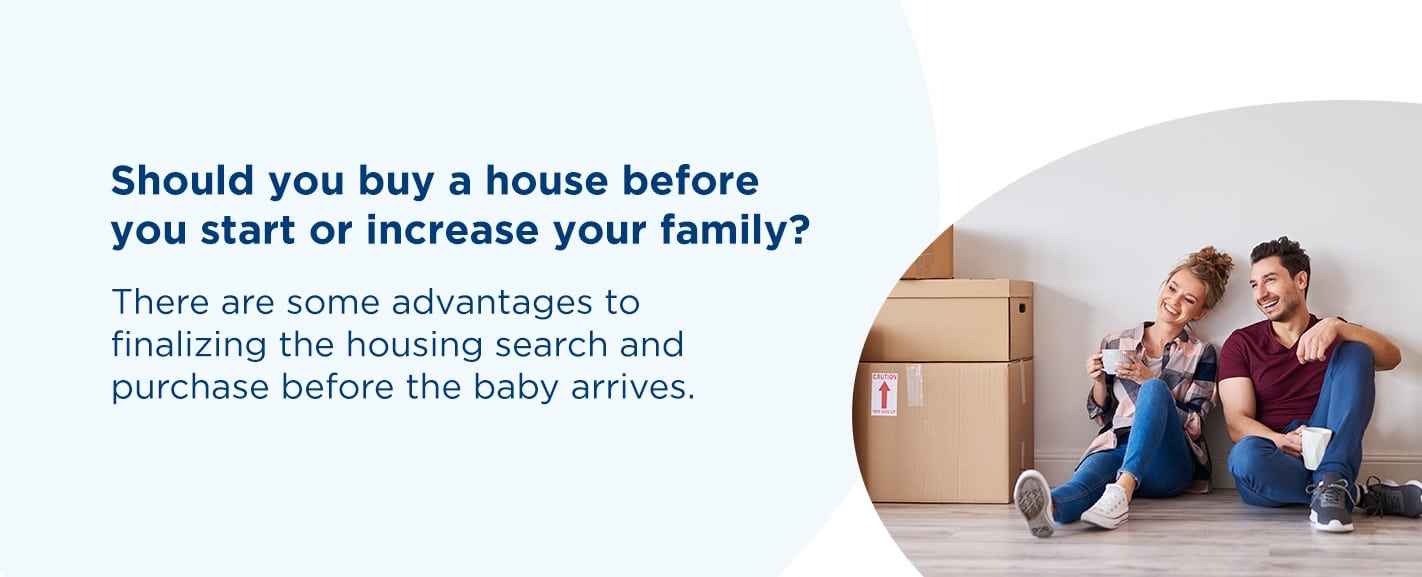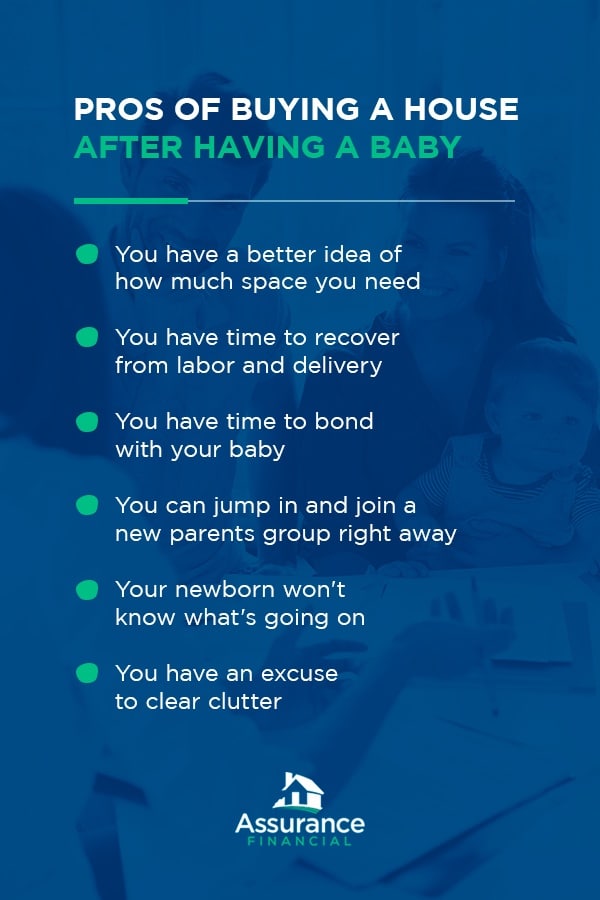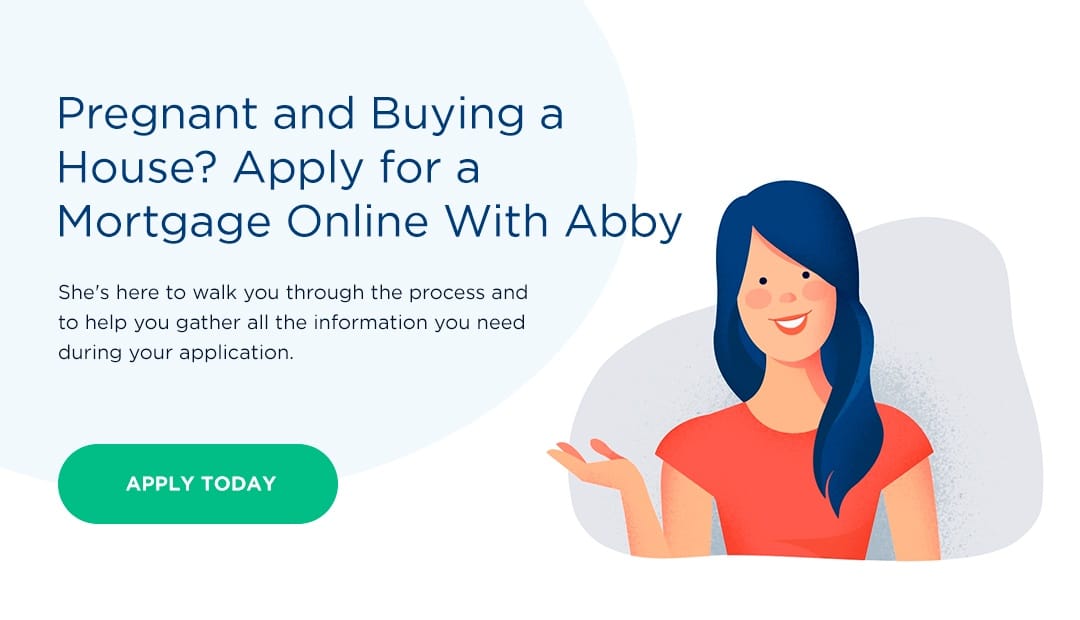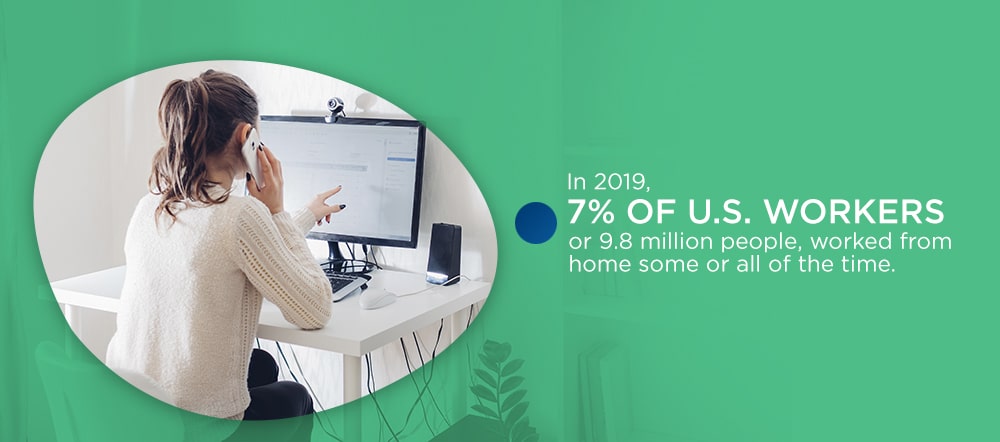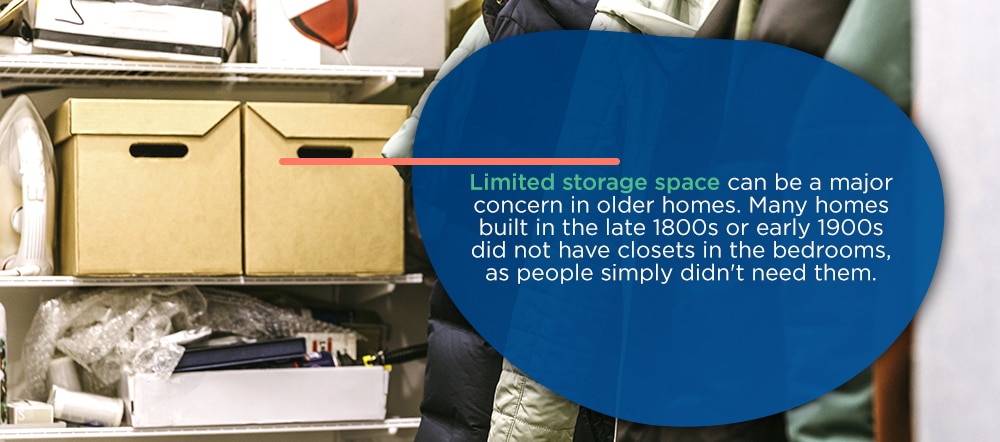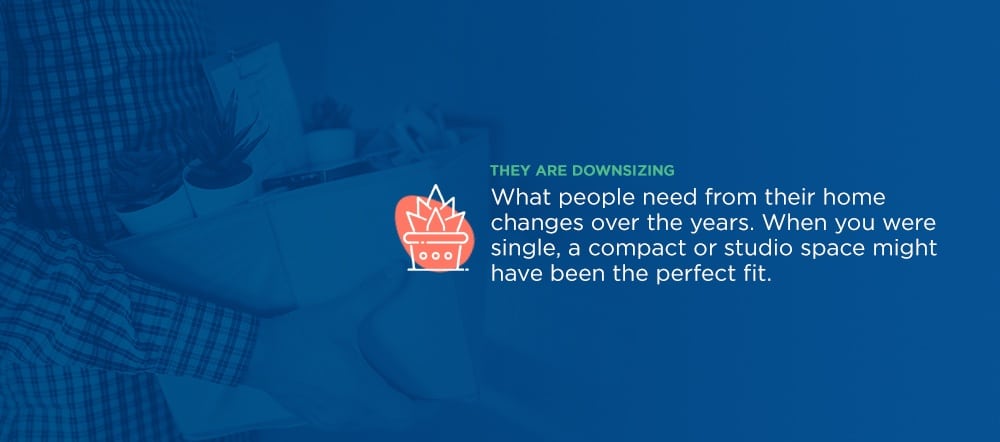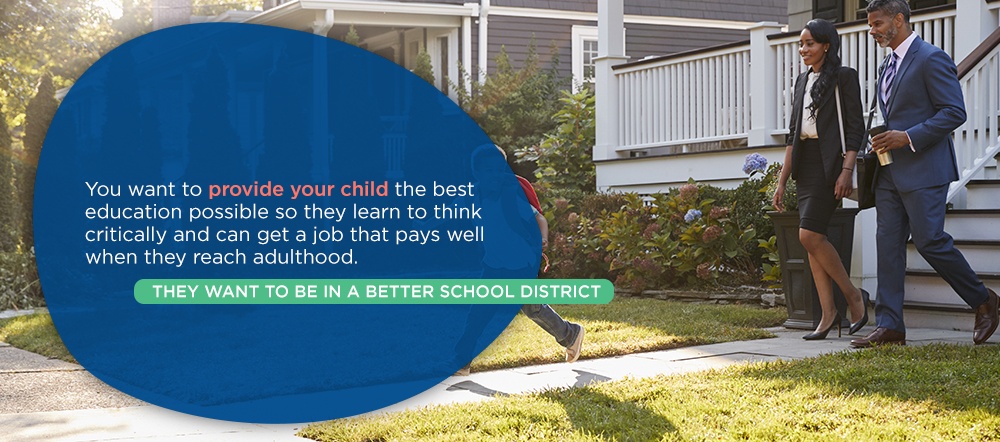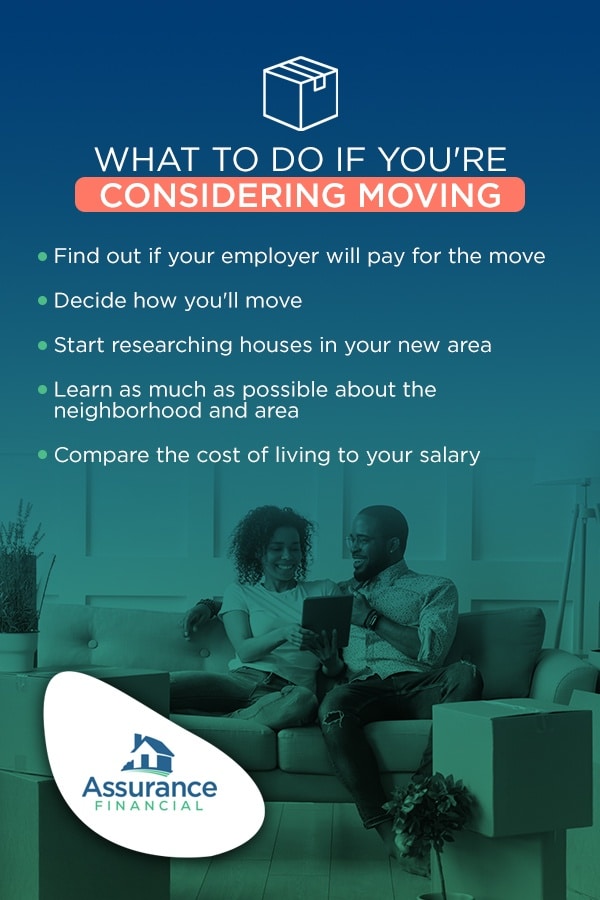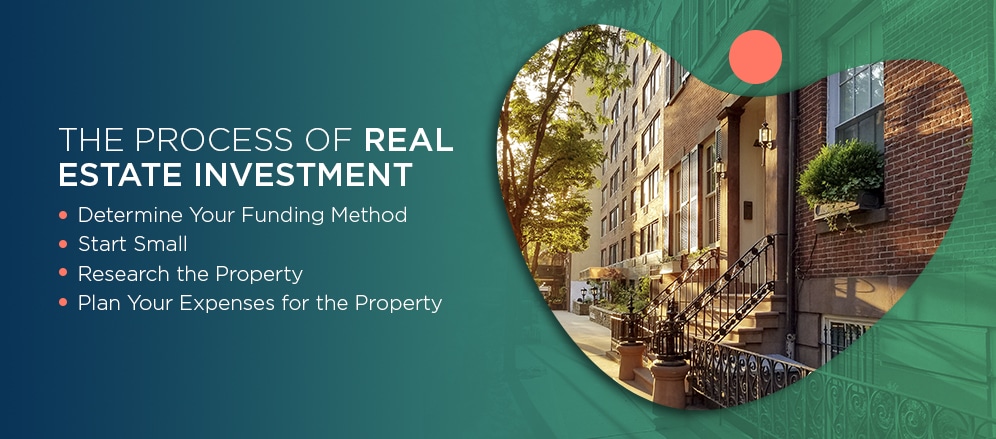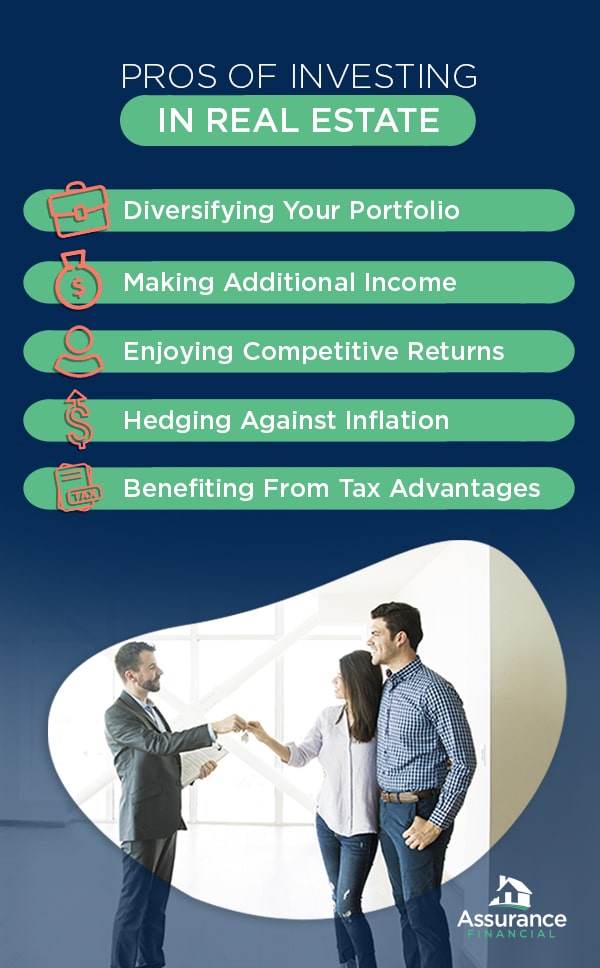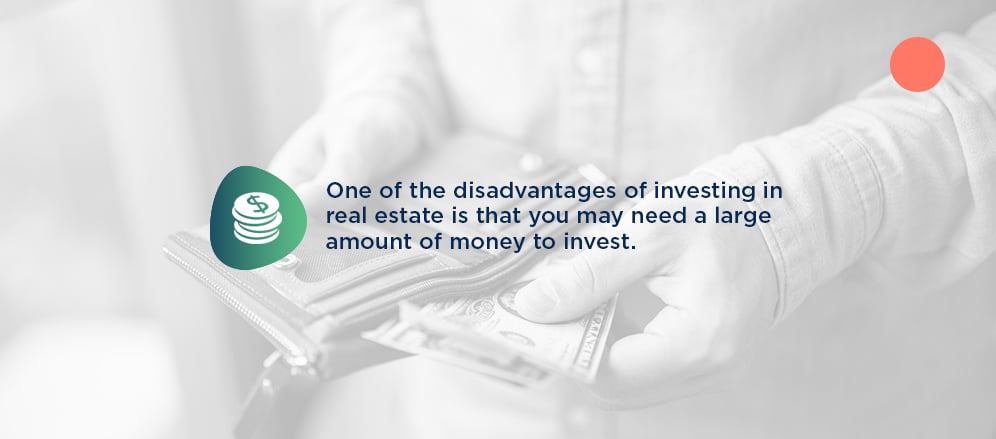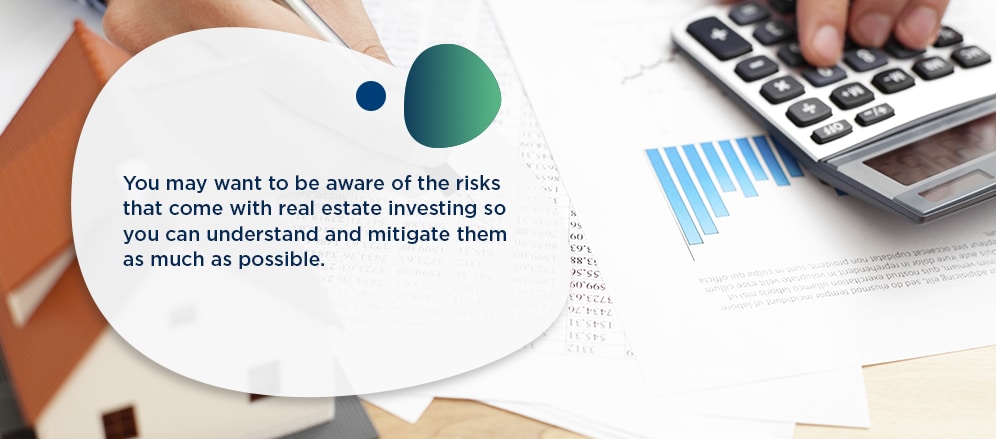Category: Purchasing a Home
As the 2024 election approaches, you might wonder what kind of impact it will have on the mortgage interest rate you pay. Learn more about what factors determine the rate you get on a loan and what you can do to make sure you get the lowest rate possible when you apply for a mortgage.
When you take out a mortgage to buy a house, you become responsible for paying back the amount you borrowed, or the principal, as well as interest on the loan. The amount you pay in interest can vary depending on multiple factors. When buying a home, your personal credit history and the current economic situation can all impact interest rates on your home loan. The situation in the world around you, such as if it is an election year, might also have some effect on interest rates.
How Have Presidential Elections Affected Mortgage Rates in the Past?
Since politics and social conditions can play a role in influencing mortgage rates, it’s natural to wonder if an upcoming election will have an impact on mortgage rates. Freddie Mac began keeping track of average monthly mortgage interests for 30-year fixed-rate home loans in April of 1971. With this data, it’s possible to look at the numbers to see if there are discernable patterns or changes in interest rates during election years.
The year after Freddie Mac started tracking mortgage rate averages, 1972, was an election year. In 1972, the annual average interest rate was 7.38%, slightly lower than the average from April to December 1971, which was 7.55%. There was a slight dip in rates to 7.29% in April 1972, but otherwise, interest rates hovered around 7.4% for much of the year.
Four years later, in 1976, the average interest rate was 8.87% — not much different from the average rate of 9.05% in 1975 or 8.85% in 1977. Inflation was a big issue in the late 1970s, so by 1980, the average rate had climbed to 13.74% at 2.5 percentage points higher than it was in 1979. The next year, the rate had reached 16.63%, so it’s not clear whether the rise was due to the election or to other economic factors at play.
In 1984, the average rate was 13.88%. From then on, rates started to fall as the economy improved. By the next election year, 1988, the average interest rate on a 30-year mortgage was 10.34%. During the next four years, it continued to fall. In 1992, the average rate was 8.39%. Although rates were falling year after year, over the course of a 12-month period, there weren’t significant changes in interest rates.
The average interest rate in 1996 was 7.81%. That year, rates rose slightly from an average of 7.03% in January to 8.32% in June before dropping to 7.6% in December. In 2000, an election year with a particularly dramatic election, rates remained relatively constant, with an annual average of 8.05%. Rates showed a similar pattern in 2004, remaining relatively stable. Even in 2008, in the midst of the Great Recession, interest rates hovered between 5.29% and 6.43%, which isn’t a lot of movement.
Rates have been near record lows in the most recent election years. In 2012, the average was 3.66%. In 2016, it was 3.65%. Interest rates dropped to record lows in 2020, but those changes were due more to the pandemic and economic concerns than the election.
What Happens to Mortgage Rates After an Election?
Does an election have an effect on mortgage rates after the fact? Just as there doesn’t seem to be much impact on rates due to a pending presidential election, the results of the vote also don’t seem to bring about much of a change. What might be more important for interest rates are other social and political factors that accompany an election year. If anything, these fluctuations may be more likely to affect people’s decision to buy a home or not more than who might be elected the next president.
If you are considering buying a home and are in the process of shopping for a mortgage, it may be favorable to take the loan with the best rate you are offered now, rather than wait to see what may or may not change in November.
What Are Mortgage Interest Rates?
Lenders charge interest both to make money on a loan and as a form of protection. A lender is taking a risk when it issues a mortgage. It’s giving you, the borrower, a lump sum of cash and then waiting 15, 20 or 30 years for you to pay it back. Even if you have a steady job, high income and excellent credit history when you take out the loan, there’s a risk that your situation will change and you might become unable to repay your loan. Charging interest ensures that the lender will make a least some money on the mortgage, even if a borrower ends up defaulting on the loan.
Types of Mortgage Interest Rates
When you apply for a mortgage, you can generally choose between two types of interest rates: fixed and adjustable. A fixed interest rate remains the same for the entire term of the loan. If you apply for a 30-year mortgage with a 4% interest rate, you will pay 4% in year one and in year 30. Your monthly mortgage payment will stay the same for the entire term of the loan with a fixed rate.
An adjustable-rate mortgage (ARM) has an interest rate that changes over time based on market rates. Often, the rate on an ARM is lower than the rate on a fixed-rate mortgage to make it more enticing for the borrower. The initial rate might last for a year or several years. When the initial rate expires, it resets to reflect the current market rate. Depending on circumstances, your monthly payment could rise considerably from one year to the next with an ARM, or it could drop.
The initial rate on an ARM often lasts for a period of three, five or seven years. Once that period ends, the rate might change every year or on another pre-determined schedule. Some ARMs have adjustment caps, which prevent the rate from increasing too much. For example, you might take out a loan with an ARM that has a 5/3/5 cap. The first five means that your interest rate can’t increase by more than five percentage points over the initial rate. Each time the interest rate adjusts, it can’t increase more than three points over the current rate. Over the course of the loan, the rate can’t ever be more than five points above the initial rate.
An ARM can seem appealing, as the initial rate on the loan is often lower than the rate on a mortgage with a fixed interest rate. As a borrower, it helps to think about how long you plan on living in your new home and whether you can afford an increase in your monthly mortgage payment if the interest rate goes up.
What Has an Impact on Mortgage Rates?
Whether an interest rate is adjustable or fixed is just one factor that determines what a lender might charge you when you apply for a mortgage. Multiple factors influence mortgage rates. Some of those factors are within the control of the borrower, while others are not. Factors that you can’t control include the economy and the Federal Reserve’s monetary policy.
Knowing what you can control when it comes to the rate you’re offered and understanding how the larger world affects mortgage rates can help you get the timing right when you apply for a home loan. The following are some of the factors that might affect your rate:
1. Credit History
When a lender gives you a mortgage, they are taking on a risk, which is part of the reason why you need to pay interest on the loan. A lender uses your credit history and score to assess how risky it would be to lend you money. The lower your credit score or the weaker your credit history, the more interest a lender is likely to charge. If you have a history of stellar credit and a score in the excellent range, you are more likely to get a better interest rate.
2. Down Payment Size
The size of your down payment also affects the perceived risk level of your mortgage. The more you pay upfront in comparison to the amount you borrow, the less risk there is to the lender. Putting 20% down is likely to get you a lower rate than if you were to put down 5% or 10%.
3. Loan Type and Length
The type of mortgage you get also affects your interest rate. VA loans and FHA loans often charge different interest rates compared to conventional loans. In some cases, the rates on a VA or FHA loan might be lower than the rate on a conventional loan.
How long you have to repay the mortgage influences the interest rate, too. Generally, shorter loan terms are lower risk for lenders, so the interest rate is lower.
4. Local Housing Markets
The state of the housing market in the area where you hope to buy can also affect the interest rate on your mortgage. If there is a lot of competition for houses in your area, interest rates can go up due to overall supply and demand. Lenders only have so much money to lend, so when there is a high demand for mortgages, they may increase the rates they charge.
5. Inflation
Mortgage rates can increase as inflation increases, allowing lenders to continue to earn a profit. If you take out a loan with a monthly payment of $1,000, the $1,000 per month that you pay in five years won’t be worth as much as the $1,000 per month you pay now, as a result of inflation.
6. 10-Year Treasury Bonds
Broadly speaking, mortgage rates tend to track the rates on 10-year Treasury bonds. When rates on Treasury bonds drop, mortgage rates tend to drop. When Treasury bond rates go up, mortgage interest rates typically go up. Treasury bonds and mortgage rates are connected because investors who are considering purchasing mortgage-backed securities typically look to the rate on long-term Treasury bonds to get an idea of what they can charge.
Mortgage-backed securities can be risky for investors, so they often want to get the highest rate possible when purchasing them. The actions of investors and the fluctuations in the bond market can push mortgage rates up or down.
7. The Federal Reserve
Mortgage interest rates often seem to move in relation to the actions of the Federal Reserve, or Fed. When the Fed announces it is lowering rates, mortgage rates tend to decrease, too. The Fed’s decisions can have an effect on the yield of Treasury bonds, but not always. The Fed also issues monetary policies, such as deciding to buy or sell debt securities, which can affect interest rates on mortgages.
8. State of the Economy
When unemployment is low and gross domestic product (GDP) is high, the demand for mortgages often increases. People feel more secure, so they are more likely to buy a home. In times of economic growth, interest rates often go up. When unemployment is high and production is down, mortgage rates often drop, since people are usually more hesitant to purchase a home.
What Is the Federal Reserve?
When people talk about interest rates, one institution they often mention is the Federal Reserve. Although the Fed gets mentioned a lot in discussions of the economy and the financial state of the U.S., many people don’t know what it is or what it does. The Fed is the U.S. central banking system. Its main mission is to keep the financial system in the U.S. stable and secure. To do that, it performs four functions:
- Establishing monetary policy: The Fed aims to keep employment high and inflation low. It sets a federal funds target rate to keep inflation down. The target rate is the amount of money each bank in the U.S. needs to have deposited with one of the Fed’s 12 banks. During a recession, the Fed might lower the target rate. In the midst of a good economy, it might raise the rate to keep inflation at bay.
- Providing payments: The Fed acts as the bank of the government and is responsible for the checking account of the Treasury Department. It also controls the amount of money in circulation. When needed, it can increase the amount of currency and coins out in the world.
- Regulating banks: Banks that are part of the Federal Reserve system need to follow the rules and regulations set by the Fed to keep financial markets stable.
- Maintaining stability: In extraordinary circumstances, the Fed might take additional actions to ensure the stability of U.S. banks. For example, after September 11, 2001, the Fed gave several banks loans to keep them from going under.
The Federal Reserve dates back to 1913 when President Woodrow Wilson signed the Federal Reserve Act into law. In the more than 100 years since its creation, the roles and responsibilities of the Fed have evolved based on the needs of the country.
Who Is on the Federal Reserve?
The Fed consists of three components: the Board of Governors, the 12 Federal Reserve Banks and the Federal Open Market Committee (FOMC).
Seven people serve on the Federal Reserve Board of Governors. The current U.S. president names each member to the board for a term of 14 years. The board members’ terms are staggered so that each president has the chance to name two new members during a four-year term. Staggering the terms helps to keep the board politically neutral. Since one term ends every two years, a president won’t have the chance to stack the board. A president who serves one four-year term can name two members, while a two-term president can name four board members.
A president might use several criteria to decide who to name to the Board of Governors. Each board member needs to come from a different Federal Reserve district. They should also somehow reflect the commercial, industrial, agricultural or financial interests of the U.S.
The FOMC consists of the seven board members and five presidents of Federal Reserve banks. The president of the Federal Reserve Bank of New York is always on the FOMC. The remaining four bank presidents can be from any of the other 11 banks. Each bank president serves a one-year term on a rotating basis. The FOMC meets eight times a year, during which it discusses the state of the economy and financial situation in the U.S. and what it can do to promote stability and sustainable growth.
Is the Federal Reserve Connected to the President?
Aside from having the current president of the U.S. name members to the Federal Reserve Board of Governors every two years, the Fed has limited connection to the president. The U.S. president cannot tell the Board of Governors what to do and shouldn’t try to influence the policy and other decisions the board makes.
Does the Fed Set Mortgage Rates?
A common misconception people have is that the Fed sets mortgage rates or defines interest rates. The Fed sets the target fund rate, which is the interest banks charge each other when they lend to each other. Many banks use the target fund rate as a benchmark when deciding their own interest rates to charge. Mortgage rates can track the rates charged by banks on other loan products, such as credit cards.
Apply for a Mortgage With Assurance Financial Today
Ready to get the ball rolling and see what interest rate you qualify for on a mortgage? Get started on your mortgage application with Abby, our digital assistant, today. You can apply online from the comfort of your home at any time of day or night. The process takes just 15 minutes. Apply today to take the next step in your homebuying journey.
Sources:
- https://www.bankrate.com/mortgages/current-interest-rates/
- https://assurancemortgage.com/va-loans/
- https://assurancemortgage.com/fha-loans/
- https://www.policygenius.com/mortgages/how-does-mortgage-interest-work/
- https://www.hsh.com/first-time-homebuyer/what-moves-mortgage-rates-the-basics.html
- https://www.thebalance.com/treasury-note-and-mortgage-rate-relationship-3305734
- https://www.stlouisfed.org/in-plain-english/federal-reserve-board-of-governors
- https://www.investopedia.com/mortgage/mortgage-rates/fixed-versus-adjustable-rate/
- https://www.thebalance.com/what-is-a-mortgage-interest-rate-4584864
- http://www.freddiemac.com/blog/homeownership/20160201_hiw_arm.page
- https://www.investopedia.com/mortgage/mortgage-rates/factors-affect-mortgage-rates/
- https://www.consumerfinance.gov/about-us/blog/7-factors-determine-your-mortgage-interest-rate/
- https://www.federalreserve.gov/monetarypolicy/fomc.htm
- https://www.federalreserve.gov/faqs/how-is-a-federal-reserve-bank-president-selected.htm
- https://www.federalreserve.gov/releases/h15/
- https://www.federalreserve.gov/faqs/credit_12846.htm
- https://www.federalreserve.gov/faqs/what-economic-goals-does-federal-reserve-seek-to-achieve-through-monetary-policy.htm
- http://www.freddiemac.com/pmms/pmms30.html
- https://www.creditkarma.com/advice/i/what-is-the-federal-reserve
- https://www.bankrate.com/mortgages/federal-reserve-and-mortgage-rates/
- https://mygatormortgage.com/presidential-election-affect-on-mortgage-rates/
- https://themortgagereports.com/59520/forecast-mortgage-rates-after-2020-election
- https://www.newamericanfunding.com/blog/how-do-elections-affect-mortgage-rates/
- https://www.nerdwallet.com/blog/mortgages/fed-mortgage-rates/
- https://assurancemortgage.com/meet-abby/
- https://assurancemortgage.com/apply/
- https://assurancemortgage.com/conventional-loans/
- https://www.federalreserve.gov/aboutthefed/structure-federal-reserve-system.htm
A starter home isn’t meant to be forever — that’s why it’s called a starter home. If your family is about to grow, you might find yourself wondering if you should buy a bigger house. For 26% of buyers between the ages of 30 and 39, a life change, such as the birth of a child, was the key factor that encouraged them to look for and buy a new home.
Whether you already own a home or not, there are some factors to consider during the process of buying a home for your family. Carefully consider what you need from your new home, as well as how the decision to buy a house may affect your finances and other areas of your life.
What to Consider When Buying a House for Your Family
There’s more to buying a house than making sure you find a place with the right number of bedrooms or a decently sized kitchen. As you start the search process for a home for your growing family, here are a few things to keep in mind:
1. Your Family Status
Consider the size of your family today and what the size of your family might be in the near future. You and your partner may be expecting your first child, or you may have recently had a baby. Do you plan to be a one-child household, or do you hope to grow your family beyond that? If you have plans to continue adding to your family, you may want to look for a house to grow into. If you purchase a two- or three-bedroom home right now, your family could outgrow it quicker than you’d like.
2. Your Budget
Just as you did when buying your first home or deciding how much you could afford to pay for rent, think carefully about your budget before you buy a bigger and potentially more expensive home. If you own your home, how much will you get from the sale? When setting your budget, it helps to err on the conservative side. If you and your partner both work, it might be a good idea to use just one partner’s income when determining how much house you can afford. That way, if one person loses their job, you can still be able to make your mortgage payments.
3. What You’ll Do With Your Current Home
If you own your current home, decide what you will do with it before you start the process of looking for a new house. It’s often ideal to sell your existing house first so you do not end up paying two mortgages. Selling your current home before you shop around or make an offer on a new property can also give you peace of mind that you have the down payment and closing costs needed for your next home purchase.
If you decide you aren’t going to sell your current property, it may be helpful to figure out what you’ll do with it — like renting it out or listing it as a vacation property — before moving on.
4. Who Will Care for What
Moving to a bigger home or a home with a bigger yard can mean more responsibilities. Before you make the move, it’s a good idea to think about what more space or more property will actually mean for you. Will you need to hire a landscaper or gardener to care for the lawn and other exterior areas of your home?
If you are moving into a house that is significantly larger than your current home, will you be able to keep up with cleaning it? You might decide to hire a housekeeper to clean the property for you. You may also decide to create a cleaning schedule and chore chart with your family members so everyone knows what needs to be done, when it needs to be done and who is responsible for doing it.
5. Your Must-Have Amenities
Before you look for a house for your growing family, make a list of the things you absolutely have to have, such as a garage, a finished basement or a sizable back yard. Focus on things that you likely wouldn’t be able to change once you bought the home or that would be difficult to adjust.
For example, you can always update a kitchen or finish a basement, but it can be difficult to make a small backyard bigger or to add another story onto your home.
6. Other Costs of Owning a Home
Your mortgage payment is likely to increase when you buy a bigger house. It may not be the only cost of living that is likely to go up, though. You might have a higher property tax payment, as well as higher utility bills if you move to a bigger, more expensive property. There is also the cost of moving and purchasing new furniture to keep in mind.
7. Your Plan for Living in the Home
Though life can be unpredictable, it helps to go into a home purchase with a general sense of how long you’ll stay there. Do you see your next property as a long-term home, somewhere you’ll remain until your children have grown up and moved out? Or do you expect to sell the house and move somewhere else in the near future? How long you hope to stay in a house may influence the size of the property you buy and the features you look for.
8. How Easy the House Will Be to Sell
Even if you hope to stay in your next home for many years, it is worth considering the resale value of the property and whether it may be easy to sell in the future.
Although there is no guarantee a home will sell quickly later on or that its value will increase notably, there are some signs that suggest that a property may be in-demand when you decide to move on. A house with good bones, that’s on a relatively quiet block in a popular neighborhood and that is near good schools is likely to sell more quickly compared to one with an unusual layout that is on a busy street.
What to Look for in a Family Home
Once you’ve considered the big picture of buying a new home, it’s time to focus on what you actually want the new home to have. Factors such as the size of the house, the number of rooms it has and its location can all influence how comfortable you and your loved ones feel inside the home.
When deciding what you want in your family home, there is no right or wrong answer. What works for you, your partner and your children are what matters most in your selection. With your family in mind, here are some factors to pay attention to when house hunting:
1. Overall Size of the House
It’s a good idea to start your house hunt with a general estimate of what size house you would like. You can use a figure such as the amount of square footage or the number of rooms to guide you. For example, you might want a bedroom for every person in your family, as well as an extra room for a guestroom and a room for an office or lounge area. Also, consider the size of the backyard you’ll want and the size of additional features, such as a garage or storage shed.
2. Number of Bedrooms
How many bedrooms do you need? In addition to having enough rooms for each person in your family at the moment, you might want a house that offers room to grow and has more bedrooms than you currently need.
3. Number of Bathrooms
Another thing to look for in your new home is the number of bathrooms available. If you have a small family, you may think one bathroom is enough. But as your child gets older, you might appreciate having a second bathroom, whether it’s an additional full-size bathroom or a powder room off of the living area. You and your partner might also appreciate having your own en-suite attached to the main bedroom in the house.
4. Tubs vs. Showers
Along with the number of bathrooms, consider what type of fixtures they contain. A shower stall without a tub might be a good fit when only adults live in your home. But it’s often easier for babies, toddlers and young children to wash up or be bathed in a tub. You may want to look for a house that has a least one bathtub to make bath time easier for everyone.
5. Finished Basement
A finished basement adds to the footprint of the house and gives you more usable space. Your kids can use the basement as a play area or study room once they start school. You can also use it as a bar or lounge area for entertaining guests in your home.
6. Unfinished Basement
You may prefer to buy a house that has an unfinished basement or other rooms that need renovation or finishing. Purchasing a home that needs some work gives you options. You can turn the basement into an in-law suite, for instance, or make it into the main bedroom. If you have the time to work on home improvement projects, buying a house that needs some work might be a good way to save money and make your new family home feel like your own.
7. Amount of Storage Space
Kids generate a lot of stuff, from strollers and diaper bags to school supplies and sporting equipment. You might want a house that has plenty of room to store all their items, whether in the form of a large mudroom or ample closet space. You may also want to make sure there is plenty of storage space for you and your partner’s possessions, especially if you have a large wardrobe or extensive shoe collection.
8. Exterior Space
One of the reasons people often move as they start a family or as their family grows in size is to take advantage of increased exterior space. If you want space for your kids to run and play or want a place for your pets to run around, consider the size of the yard at your new home.
In addition to size, another thing to consider is the layout and design of the yard. Is it fenced in, or can you easily add a fence for privacy and security? Is the yard on a hill, or is it relatively flat? It’s also worth noting how close the yard is to the street. Even with a fence, you may prefer to look for a yard that is set back from the road to reduce the chance of your kids or pets running into the street.
9. Home Layout and Floor Plan
Some home layouts or floor plans make more sense than others, and some are better suited for families with children. Consider the location of the bedrooms in the new home. Will your bedroom be close to your child’s so you can hear them if they have a bad dream and call out in the middle of the night?
Also, think about the location of the bathrooms. Having at least one bathroom on each floor can be convenient, as can having a bathroom located near the kids’ rooms and one near or attached to the main bedroom.
10. School Districts
If you plan to send your children to public school, the district a particular house is situated in may make or break your interest in it. Even if you don’t want to send your kids to public school, it can still be worthwhile to look for a home in a popular district, as the quality of schools around a property often affects its resale value.
11. Neighborhood Feel
The general location of the home is another thing to look for. What can the neighborhood offer you and your family? You might want to look for playgrounds nearby, local cafes or restaurants, and easy access to shopping. Research the neighborhood before putting in an offer. Is it the type of place where people feel comfortable taking a walk or do people mainly drive around in their cars?
12. Safety
Neighborhood safety is one thing to consider. Another thing is the safety of the home itself. Some houses aren’t particularly kid-friendly. They might have open stairs or railings that are easy for a small person to slip through or get caught in. If there is a swimming pool on the property, it’s important that it is fenced in or otherwise in compliance with local code. The condition of the electrical system is another safety concern to think about.
[download_section]
Consider a Mortgage When Buying a Family Home
It costs the average family $233,610 to raise a child from birth through the age of 17, or about $12,980 per year. When you’re spending that much per child, you might wonder how it would be possible to afford to buy a house for your family — particularly a house that has a higher price tag than the one you currently own or rent.
Fortunately, you don’t need to pay for your new house in full upfront. A mortgage allows you to make payments on the property that are spaced out over many years. The most popular mortgage term is for 30 years, which gives you plenty of time to pay down the loan.
How Does a Mortgage Work?
A mortgage is a type of loan used to buy a home. When you take out a mortgage, the house you buy serves as collateral on the loan. That means if you are unable to make your monthly mortgage payments, the bank or mortgage lender can foreclose on, or claim, your property.
To get a mortgage, you first need to apply for it. During the application process, a lender will likely verify your income, credit score and savings to determine the amount you are eligible to borrow and the interest rate you will pay. The interest rate is the cost of getting the loan. It’s an additional amount you pay each month on top of the principal payment to the lender.
What Mortgage Options Are Available?
There are multiple types of mortgages available for different homebuyers. If you are buying a house for the first time, there are several programs specifically for first-time homebuyers. First-time buyer loans often accept borrowers who earn lower incomes or who do not have a sizable down payment to pay upfront. There are also mortgages available for people who already own a home and are looking to purchase another one. Construction loans are an option if you plan to build your family’s next home.
Mortgages also differ in how they are repaid and the length of the loan. Although many borrowers opt for a 30-year loan, loan terms of 15, 20 or 25 years are also available. The shorter the mortgage term, the higher your monthly payments will be, but the less you will pay in interest over the life of the loan. Mortgages with shorter loan terms also often charge lower interest rates.
The amount of interest you pay on a mortgage depends on several factors. Your credit score and the size of the down payment affect the interest rate. The higher your score and the bigger your down payment, the lower the interest on the loan. Interest rates are also based on market conditions.
If you decide to get a fixed-rate mortgage, the interest rate will stay the same for the length of the loan. In a mortgage with a variable rate, the interest rate can change over the term of the loan, depending on the market. That means your monthly payment might increase or decrease every so often, which can affect your budget.
Apply for a Mortgage Today
If you’re considering buying a house for your growing family to live in, it’s a good idea to begin the mortgage process before shopping. Getting pre-qualified for a home loan before you begin the house hunt means you know how much you can comfortably borrow and whether or not a lender is likely to approve you for a loan.
Applying for a mortgage doesn’t have to be complicated. In fact, Abby, Assurance Financial’s virtual assistant, can walk you through the process in just 15 minutes. To get started, you’ll need proof of income, such as your paystubs, your ID and your most recent tax return. We’ll take care of the rest.
Ready to purchase a home for your growing family? Apply online with Abby today!
Sources:
- https://www.nar.realtor/sites/default/files/documents/2020-generational-trends-report-03-05-2020.pdf
- https://www.phillymag.com/sponsor-content/tips-buying-house-growing-family/
- https://www.realtor.com/advice/buy/home-youre-buying-good-resale-value/
- https://www.quickenloans.com/blog/things-look-shopping-next-home
- https://www.todaysparent.com/family/family-life/when-to-buy-a-bigger-house/
- https://www.opendoor.com/w/blog/how-to-find-the-ideal-home-when-starting-or-growing-a-family
- https://movement.com/blog/2016/04/19/growing-family-7-things-you-need-to-know-before-buying-bigger/
- http://www.exithgm.com/buying-a-home/buying-house-growing-family/
- https://primaryresidentialsf.com/home-buyer-advice/buying-a-house-for-a-growing-family/
- https://www.usda.gov/media/blog/2017/01/13/cost-raising-child
- https://assurancemortgage.com/everything-you-need-to-know-about-30-year-fixed-rate-mortgages/
- https://assurancemortgage.com/experienced-homebuyer/
- https://assurancemortgage.com/first-time-home-buyer-loans/
- https://assurancemortgage.com/remodeling-construction/
- https://www.consumerfinance.gov/ask-cfpb/how-does-paying-down-a-mortgage-work-en-1943
- https://www.lendingtree.com/home/mortgage/how-does-a-mortgage-work/
- https://www.nerdwallet.com/blog/mortgages/how-to-apply-for-a-mortgage/
- https://assurancemortgage.com/apply/
You’ve recently visited a home, and it feels like the one. You put in an offer, the seller accepted it and now it’s time for the home inspection. Scheduling a home inspection is an essential part of the homebuying process. The inspection can clue you into any issues in the house that you might have missed and can protect you from buying a home that has many problems.
Even if everything about the home looked great when you toured it the first time, the inspection isn’t something you want to skip. You can use the information you get from the inspector to negotiate with the seller and to correct any concerns before you close on the property. Although many buyers schedule their own inspection, sellers can also set up a home inspection before they list their home. A pre-listing inspection can give a seller an idea of what should be fixed up before the house goes on the market.
Whether you are the buyer or seller, a home inspection can help you save money and time.
Table of Contents
- What is Home Inspection?
- When Should the Home Inspection Take Place?
- How to Hire a Home Inspector?
- What to Expect as a Buyer
- What to do During and After a Home Inspection
- What to Expect as a Seller
- How to Prepare
- What Sellers can do After
- Cost of a Home Inspection
- What’s in a Home Inspection Report?
- Apply Today
What Is a Home Inspection?
A home inspection is a non-invasive examination of the structure and systems of a home. During an inspection, a home inspector will check out the house from top to bottom, evaluating the condition of everything from the foundation to the roof. The inspection usually takes place with the buyer or seller present and often takes several hours to complete. How long the inspection takes depends on the size of the home and its overall condition. A larger house or a house that has many issues will usually require a longer inspection than a small home or a home that has few problems.
The home inspection often involves three parts, in which an inspector will:
- Identify issues in the home.
- Recommend ways to correct any issues.
- Take photos of the structures and systems in a home to include in the report.
One thing worth noting about a home inspection is that the issues uncovered are typically those that are visible. An inspector isn’t going to make holes in the walls of the home or tear up the flooring to look at the condition of the subfloor. They won’t try to look at pipes or wiring beneath the walls or floors, either. If it isn’t safe to evaluate or examine a particular area of the home, the inspector will also generally leave it. For example, although a roof inspection is usually part of the process, if the roof is too high to safely reach with a ladder, an inspector might examine it through a pair of binoculars, rather than going onto it.
While a home inspection will check most areas of the home, there are some things the inspector won’t evaluate. Usually, swimming pools, fireplaces and septic systems aren’t included in the home inspection. The inspector is also likely not to comment on the condition of the soil or ground underneath.
When Should the Home Inspection Take Place?
If a buyer is scheduling a home inspection, it usually occurs shortly after a seller has accepted the buyer’s offer and after both parties have signed a purchase agreement. Your real estate agent should include an inspection contingency clause in the agreement. The clause gives you the option of scheduling an inspection and outlines a time frame for it, such as up to seven days after the parties sign the purchase agreement.
The clause should also state that you have the option of backing out of the sale of the home if you and the seller can’t agree on negotiations or if the inspection turns up significant issues with the home.
When someone is selling their home, they might decide to schedule a pre-listing inspection. During a pre-listing inspection, the inspector will check the home for any issues and recommend changes the seller can make before putting their home on the market. After a pre-listing inspection, a seller can decide what improvements to make to increase the sale price of their home. They can also use the information in the report to set the price of the home.
How to Hire a Home Inspector
If you are in the process of buying a home, you get to choose the person who performs the inspection. Just as you might have shopped around for your real estate agent, it’s a good idea to shop around before you choose a home inspector. Your agent might have a list of recommended inspectors for you to work with, but it often pays to do your own research. You want to hire someone who is certified and who you can trust to give you an unbiased opinion. The inspectors your agent recommends might offer the agent a referral bonus, which means they aren’t exactly a neutral party.
You might want to ask friends or relatives who recently purchased a home in your area who they worked with for the inspection and if they’d recommend the inspector they used. An online search can tell you if others have had a positive experience with a particular inspector or if there are any complaints or concerns raised about them.
You can also ask the inspector to share a sample copy of the report they provide. That way, you can see how detailed the report might be and can get a sense of how well the inspector describes the issues with the property.
What to Expect During a Home Inspection as a Buyer
If a seller has accepted your offer for their home and has agreed to a home inspection contingency, set aside several hours on the day of the inspection to give the inspector time to do their job and to give yourself the opportunity to be present for as much of the process as possible. You don’t have to be at the home during the inspection, but being there is usually recommended. Walking through the property with the inspector can help you gain a better understanding of any issues and what they might mean for your safety and comfort if you end up buying the property.
Your real estate agent doesn’t have to be present during the inspection, but many choose to be there. If your agent is present, they are equipped to give you advice on how to negotiate with the sellers if there are any issues with the house that you want fixed before closing. The inspector will work from the top of the house to the bottom and pay close attention to the following:
- Electrical issues: The inspector will test the outlets in the home to verify they are grounded. They will also look at the circuit breaker and check to see that the wiring is up to code. If there are problems with the house’s electrical system, the inspector will describe them to you and will give you an idea of what you can do to correct them.
- Signs of water damage: The inspector will look for visible signs of water damage, such as a crack in the wall or signs of moisture in the basement. They will advise you on what you can do about any damage.
- Structural issues: During the inspection, the inspector will note potential structural concerns, such as signs of bowing on the facade of the house or signs that the floor is not as supported as it should be. They will also look at windows and doors to make sure they open and shut as they should and to confirm that they are straight.
- The condition of the roof: Many inspections require the inspector to get on the roof to check it out and make comments about its condition. The inspector notes the state of the roof and its perceived age and usually provides the buyer with an idea of what type of repair or maintenance it might need.
- The condition of the HVAC system: The inspector will test the HVAC system, whether it includes central air and heat or just heat. They will record the age of the system and its condition and will recommend changes or fixes as needed, such as replacing the air filter or considering upgrading an older system. During the inspection, they will turn on the heat or air conditioning to see how it performs.
- Signs of pest infestation: The inspector will also look for visible signs of pest damage. In many cases, a separate pest inspection, such as a termite inspection, is recommended as part of the home inspection process.
- Plumbing issues: While the inspector isn’t going to cut into walls to see if pipes are leaking, they will check the accessible areas of the house’s plumbing. They will test the water pressure coming from the faucets and will evaluate how well the drains function. They will also look at the pipes in the basement and make recommendations about the conditions of the piping and the location of shut-off valves.
The inspector is also likely to test any appliances that will be included in the sale of the home to make sure they function properly. For example, they may run a cycle in the washing machine and turn the dryer on. They will also look at the refrigerator and oven in the kitchen.
What to Do During a Home Inspection
During the home inspection, it’s a good idea to trail the inspector and take note of what they say. A trustworthy inspector will encourage you to ask questions throughout the process and will be happy to answer them for you. Although you might want to take notes and photos during the inspection, keep in mind that the inspector is also taking photos and will create a report to share with you at the end of the process.
What to Do After a Home Inspection
Once the home inspection is complete, it’s time for you to consider negotiating. You’ll usually get a copy of the inspection report within a few days. After reviewing it with your real estate agent, you can prepare a list of items you’d like the seller to correct before closing. You might also ask the seller to provide a credit to cover the cost of repairs you do yourself.
Usually, your agent will guide you toward requesting fixes for significant issues. If the furnace didn’t work during the inspection or if the inspector recommends tuning up the HVAC system, that is something worth asking the seller to do. Smaller concerns, such as installing a cover over a light switch or adding a smoke detector, might be things you decide to take on yourself.
What to Expect During a House Inspection as a Seller
If you are selling your home and decide to have a pre-listing inspection, you can expect an experience similar to the buyer’s. During the process, the home inspector will examine the home’s roof, plumbing, HVAC system, electrical system, structure and overall condition. They will provide a report that lets you know what they recommend doing.
A pre-listing inspection has its pros and cons. One advantage is it lets you know about any issues and gives you the chance to correct them, so you can list the house for a higher price. A pre-listing inspection can also save you time after you get an offer on the home, as you’ll have already fixed up many potential concerns.
A drawback of a pre-listing inspection is that it alerts you to any issues, and you then have to disclose those issues to potential buyers. Depending on the concerns, they might be enough to keep someone from making an offer on the home. Before putting your home on the market, talk to your real estate agent to see if they recommend a pre-listing inspection.
How to Prepare Your House for a Home Inspection
The seller is generally not present when a potential buyer arranges for a home inspection. While you aren’t expected to be there for the inspection, there are a few things you can do to the house in advance:
- Test the drains:Make sure sink and tub drains run clearly before the inspection so you don’t have to worry about them raising red flags for a buyer. If the drains are running slowly, you might want to snake them or otherwise clean them before the inspector arrives.
- Replace light bulbs: If lights don’t work, an inspector might wonder if there is an issue with the electrical system.
- Test smoke and carbon monoxide alarms: Non-functioning smoke or carbon monoxide alarms are a safety concern during an inspection. Test the alarms in the home and replace their batteries in advance.
- Prune trees and shrubbery: Trim any tree branches that extend over the roof of the house and prune back shrubbery. Improving the landscaping before the inspection reduces the chance of damage caused by fallen branches and also helps to keep rodents away from the home. Pruned trees and shrubs also help improve the curb appeal of the home, which can make it more attractive to potential buyers.
- Remove pets from the property: If you are still living in the house, clear everyone out before the inspector arrives, including your pets.
- Clear clutter: If you still have belongings in the home, either clear them out before the inspection or organize them so they aren’t blocking the inspector’s path. An inspector can only examine accessible areas and isn’t allowed to touch your belongings. If there are boxes in front of the circuit panel or near the HVAC system, the inspector might not be able to reach it to do their job correctly.
- Keep everything on:Keep appliances on and plugged in, even if the house is vacant. The inspector will need to test that things work and won’t be able to do so if, for example, the refrigerator has been unplugged for several weeks.
- Replace the air filters in the HVAC: Replacing the air filters in the HVAC system allows it to function at its best and most efficient when the inspector tests it.
- Organize repair and maintenance receipts: If you don’t provide the inspector or buyer with receipts or proof of maintenance, they may make their best guess about the age or condition of the systems in a home. Make the receipts and other proof of maintenance available to the buyer and inspector to avoid this.
What Sellers Can Do After a Home Inspection
After a home inspection, be prepared for the buyer to come to you with a list of things they’d like corrected before closing or a credit request so they can make the corrections themselves. Your real estate agent can be a helpful source at this point to guide you through the negotiation process. Keep in mind that some issues, such as code violations or structural issues, usually need to be corrected before closing. Other issues, such as a broken refrigerator or a missing light switch cover, usually don’t have to be repaired before the sale goes through.
At the very least, as the seller, you should be prepared to offer something to the buyer after the inspection. If the process turned up multiple issues, you’ll have to disclose them to any future buyers, should the current deal fall through. Accordingly, it might be worthwhile to be as flexible as possible and try to work with the buyer to come up with a solution that works for both of you.
Cost of a Home Inspection
The cost of a home inspection can vary based on the size of the home and its location. The bigger the home, the more the inspection will cost. The type of home also influences the cost of the inspection. A condo or apartment inspection will usually cost less than the inspection of a free-standing home. The average cost is a few hundred dollars.
Some inspections are more detailed and thorough than others, which also affects the price. For example, a buyer might decide to have a termite inspection and radon test as part of their overall home inspection, which will raise the price tag.
Usually, the buyer pays for the inspection, but there are cases when they might be able to get the seller to pay. If it’s a buyer’s market and the seller really wants to sell the home, a buyer might be able to negotiate the cost of the inspection into their offer. During a seller’s market, when there is a lot of demand for homes and not many available, a seller can easily refuse to pay for the inspection. They might be able to waive the home inspection contingency entirely, depending on how hot the market is.
What’s in a Home Inspection Report?
Within a week or so of the inspection, the buyer, seller and their respective real estate agents will receive a copy of the inspection report. The report will usually be a very detailed, multi-page document that explains what a home inspection does and doesn’t do and describes the condition of the home. The inspector also highlights the type of issues they discovered during the process and makes recommendations for correcting problems. The report will also contain photos of the areas of the home and of any potential issues in the house.
In the report, the inspector will describe the various systems in the home and its overall structure. They will record the age of certain appliances and systems or will estimate the age as best as they can based on the information available.
Take the First Step Toward Homeownership With Assurance Financial
If you are looking to buy your first home or are planning to sell your home and move into a newer or bigger house, the first thing to do is get pre-qualified for a mortgage. Starting your mortgage application early on lets you know how much house you can afford and whether you qualify for a loan or not. Apply today to get started on your homebuying journey.
Sources:
- https://www.nerdwallet.com/article/mortgages/home-inspection
- https://www.zillow.com/sellers-guide/pre-listing-home-inspection/
- https://www.realtor.com/advice/sell/why-get-a-home-inspection-before-putting-your-home-on-the-market/
- https://www.consumerreports.org/home-inspections/how-to-choose-a-home-inspector/
- https://www.quickenloans.com/learn/what-you-need-to-know-before-hiring-a-home-inspector
- https://www.investopedia.com/articles/personal-finance/102913/contingency-clauses-home-purchase-contracts.asp
- http://www.homebuyinginstitute.com/mortgage/when-does-the-home-inspection-occu
- https://www.homeadvisor.com/cost/inspectors-and-appraisers/hire-a-home-inspector
- https://www.homeinspector.org/Buyers-And-Owners/Homebuyers-Guide/FAQs-about-Home-Inspection
- https://www.nerdwallet.com/blog/mortgages/home-inspection-dos-donts-homebuyers/
- https://www.homelight.com/blog/how-home-inspection-works/
- https://www.homelight.com/blog/home-inspection-tips/
- https://themortgagereports.com/37715/home-inspection-checklist-what-to-expect-on-inspection-day
- https://www.houselogic.com/buy/how-to-buy-step-by-step/home-inspection-what-to-expect/
- https://www.parealtors.org/home-inspection-specifications/
- https://www.thebalance.com/getting-through-the-home-inspection-1797764
- https://www.parealtors.org/waiving-inspection-contingencies-in-a-sellers-market/
- https://www.zillow.com/sellers-guide/bad-home-inspection-for-sellers/
- https://www.realtor.com/advice/sell/handle-repair-requests/
- https://assurancemortgage.com/apply/
- https://assurancemortgage.com/why-get-pre-qualified-before-looking-for-home/
- https://assurancemortgage.com/what-are-closing-costs/
- https://assurancemortgage.com/five-questions-to-ask-before-buying-a-home/
- https://assurancemortgage.com/calculators/how-much-can-i-afford/
It’s the age-old question: What came first, the home or the baby? Many people are asking themselves, “Should we buy a house or have a baby?” Does it make more sense to buy a house after having a baby, or should you do it before, so that you’re all settled in by the time you’re ready to start a family?
The answer is that there is no one right answer. Buying a house and having a baby at the same time makes sense for some people. Purchasing a home before welcoming a child is the right choice for others, and buying a house after having a baby makes sense for some. Here’s what you need to know about getting a mortgage, expenses connected to your new home and new baby and a few benefits of each option.
Qualifying for a Mortgage Before Having a Baby
The process of qualifying for a mortgage before you have a baby is very similar to qualifying for a mortgage after you’ve had your child, with one notable exception. If you or your partner are currently on maternity or paternity leave when you apply for the loan, your leave could affect your ability to qualify for a mortgage. Being on unpaid leave can complicate the mortgage application process, as your mortgage lender might not be able to verify your income, even if you plan on returning to work after a few weeks. For that reason, it can make more sense to apply for your mortgage and buy your house pre-baby or wait until both you and your partner have gone back to work after the baby arrives before you start the mortgage process.
When you apply for a home loan, the lender will look at the following areas to determine whether you’re eligible for a mortgage, how much you can borrow and the interest rate you’ll pay.
- Your income: How much you and your partner earn plays a major role when it comes to determining how much you can borrow. As a general rule, the more you earn and the more stable your income is, the more you can borrow to buy a house. If either you or your partner plans on staying home with the baby and not earning income, it might be a good idea to see if you qualify for a mortgage using the other person’s salary. That way, you’ll avoid buying more house than you can comfortably afford after the baby arrives and your income situation changes.
- Your credit: Your credit history and score also have a considerable effect on the mortgage process. The higher your score, the better the terms on the loan you’ll receive. As with income, if one person doesn’t have the best credit or has a troubled credit history, it might be worthwhile to try and qualify for the mortgage using just one partner’s credit.
- Your employment history: How long you’ve been with a particular employer or have been self-employed also plays a role when you’re qualifying for a home loan. Lenders like to see a stable employment history, as it implies that you will continue to work for a company or continue to have a reliable source of income.
- Your other debts: Another factor lenders consider when reviewing a mortgage application is the number of other debts an individual or couple has and the amount of those debts. In many cases, your debt-to-income ratio should be under 36%. If you earn $1,000 per month, your monthly debt payments should be less than $360. In some cases, your debt-to-income ratio can be up to 45% or 50%, but 36% is usually preferable for you and your lender.
- Your assets: A lender wants to know how much you have in savings or investments when you apply for a mortgage. There are two reasons why information about your assets is important. First, it lets a lender know that you have enough money for the down payment. It also can provide some peace of mind to the lender that if you lose income, you’ll still have a way to make your mortgage payments.
Do You Need to Tell the Lender About Your Family Plans?
Lenders can’t discriminate against people who are pregnant, who have children or who are considering having children in the near future. They also can’t discriminate against people who are out on parental leave. If you are currently pregnant or have plans to become pregnant soon, you have no obligation to tell a lender. They also can’t ask you about your family plans.
If you are currently on maternity or paternity leave, it is a slightly different story. Income is an essential element when approving or denying a person for a loan, so consider providing your lender with plenty of documentation about your leave, such as when it will end and how much your income will be once your leave is over. Your employer might be willing to write a note that provides income information and a start and end date for your leave.
While lenders can’t discriminate against people on leave, being on unpaid leave can make it challenging for parents to get a mortgage. It’s a good idea to work with a lender who is understanding from the beginning and willing to work around your leave rather than deny your application.
Common Expenses Related to Homes and Children
Buying a home and having a child are two major life events that bring with them several expenses. Understanding the cost of getting pregnant and buying a house can help you determine if one or the other — or both — is the right choice for you at the moment. Take a look at some of the hidden and not-so-hidden costs of homeownership and parenthood.
House-Related Expenses
Some of the expenses related to owning a home are ongoing, while others are less frequent.
- Utilities: You’ll need to pay to keep the lights on, the furnace operating and the water running at your home. If you want internet and television services, you’ll need to pay for those, as well. The cost of utilities can vary based on the size of the house and how much energy your family uses. Local rates also vary, and some areas are more expensive than others.
- Repairs and maintenance: The equipment and systems that keep your house ticking will need ongoing care and maintenance and might need more extensive repairs from time to time. Maintenance involves things such as tune-ups of the HVAC system or furnace, cleaning the dryer vents and mowing the lawn. Repairs can include fixing broken appliances, leaks in the plumbing or issues with the electrical system. Experts usually recommend that homeowners have at least 1% of the price of the home set aside to cover maintenance costs and repair bills.
- Furniture, appliances and decorations: You’ll want to fill your new home with furniture and decor to put your own personal spin on it. Depending on what type of appliances came with the house and their age, you might also want to purchase new ones or upgrade existing ones. While furniture and appliances can be expensive, especially if you’re buying a lot all at once, the good news is that they are usually a one-time cost or a once-in-a-decade cost.
- Homeowner’s insurance premiums: If you have a mortgage, you need to have homeowner’s insurance. Usually, your monthly mortgage payment includes the cost of your insurance premiums. Still, it’s something to plan for, as you don’t want to be surprised when your first mortgage bill is several hundred dollars more than you expected.
- Property tax: Property tax is another expense that can vary widely based on location. Some areas have a high tax rate, while others have a relatively low one. Some cities or municipalities offer tax abatements to certain types of homeowners or to people who buy specific kinds of property. Like your homeowner’s insurance, your property tax is usually collected with your mortgage payment.
- Homeowners’ association (HOA) fees: Depending on the type of neighborhood you move into, you might have to pay HOA fees. Usually, HOA fees are required when you live in a condo or townhouse development. The fees cover the cost of maintaining common areas, such as the lobby of a condo building or the parking area in a residential development. The fees can vary from area to area and can suddenly increase if an unexpected event, such as an excessive amount of snowfall or extensive storm damage, occurs.
Child-Related Expenses
It costs a middle-income family an average of $12,980 per year to raise a child. The three largest expenses are housing, food and child care and education. For now, let’s take a look at the costs associated with bringing a new baby home.
- Delivery: Although insurance is meant to cover many of the costs of having a baby, the average insured woman paid $4,569 to deliver a baby in 2015. How the baby is born and where they are born can affect the price of delivery. For example, it usually costs more to have a C-section than to deliver vaginally.
- Clothing: Baby clothes are cute, but they also cost money. You might get a lot of clothes at your baby shower, but you can also expect your little one to outgrow those onesies and tiny T-shirts at a rapid pace.
- Baby gear: Babies typically need a lot of stuff, from car seats to bassinets and from cribs to strollers. There’s also the cost of “fun” things for babies, such as toys and walkers. One way to reduce the cost of gearing up for baby is to buy previously-owned items or to accept hand-me-downs from relatives and friends.
- Food: Babies who breastfeed get a nearly free source of food for the first few months or year of their lives. But not every baby can be breastfed, meaning some parents will need to plan on purchasing formula. As your baby begins to eat solid foods, usually around six months, you’ll want to add the cost of their food to your budget.
- Daycare: Although parents can decide to stay home with their child indefinitely, many need to go back to work at some point. The cost of daycare for an infant varies greatly from region to region but is generally high. In Mississippi, annual infant care costs $5,436, or about 11% of the median household income. In Washington, D.C., the average annual infant care cost is $24,243, or 28.3% of the median household income.
Should you buy a house before you start or increase your family? There are some advantages to finalizing the housing search and purchase before the baby arrives.
- You have time to settle in: If you buy your home with a growing family in mind, but before any children arrive, you will have plenty of time to settle into the house and get unpacked before you start planning the next phase of your life. You can even enjoy the house as just the two of you for a while, depending on whether you are pregnant when you buy your home.
- You can finish home projects before baby arrives: Waiting to start your family until after you’ve bought a home gives you time to tick all those home projects off of your list. The nesting instinct often kicks in when women are pregnant, which means you might get a shot of energy and feel the gumption to fix that leaking kitchen faucet, redo the backsplash or wallpaper the bedroom before your newest family member arrives.
- You’ll have less to pack: Babies and children might be small, but they tend to have a lot of stuff. If you buy your house before getting pregnant, any gifts you get during the shower or any items you purchase for your newborn can be sent directly to your home. You’ll end up with fewer things to pack and haul, which can also help you save money on the cost of movers or renting a truck.
- Baby can get settled into their new home: Babies and toddlers are creatures of habit and routine — once you establish those habits and routines with them. Moving can throw a wrench into their routine, meaning you might go from having a baby who sleeps through the night to having a baby who wakes up every two hours screaming. If you’re already in your home and settled when the baby is born, you don’t have to worry about disrupting their sleep schedule or another routine later.
- It can be easier to search for a house when child-free: Before you buy a house, you have to find a house. That can be easier to do when it’s just you or you and your partner looking. If you have a baby already, you’ll need to find a babysitter for them or bring them with you to look at homes. While a very young baby will likely sleep through the experience of househunting with their parents, you might not want to run the risk of them waking up screaming when you’re in the middle of checking out an open house.
[download_section]
Pros of Buying a House After Having a Baby
Waiting to buy your home and move until after you have had your child or expanded your family can also make sense, depending on your needs and circumstances. Some of the benefits of postponing the home buying process until after you have a baby include:
- You have a better idea of how much space you need: If you wait to start looking for a home until after you’ve had your child, you’ll have a better idea of what works and what doesn’t in your current home and what you would like from your future residence. For example, you might find that a two-bedroom is too small for you, your partner and your baby and that you’d like at least a three-bedroom home. Or you might realize that you want some outdoor space for your child to play safely as they get older. You might decide going up and down steps with a baby in tow is challenging and that you’d prefer to move into a single-story ranch home.
- You have time to recover from labor and delivery: Although it varies from woman to woman, many find that they do need time to take it easy and recover after childbirth. That can be particularly true of women who give birth via a C-section. If you wait to start looking for homes until after your baby is born, you can also give yourself plenty of time to heal from the labor itself.
- You have time to bond with your baby: You can take all the time you need to bond with your baby if you decide to wait until after they are born to move. You might choose to postpone the housing search until after your parental leave is up so that you can spend that time connecting with your child.
- You can jump in and join a new parents group right away: Depending on how far away you end up moving, you might need to find a new social circle when you arrive. You might want to expand your social group after having a baby anyway, especially if the rest of your friends are still child-free. Waiting to move until after your baby is born means that as soon as you get settled into your new neighborhood, you can join a local parents group or another social club designed for parents of young ones, such as a Mommy and Me yoga club or a Stroller Strides exercise club.
- Your newborn won’t know what’s going on: Babies, particularly newborns, are easier than most people give them credit for. They sleep a lot of the day and aren’t going to have a clue what is going on. You can tuck your sleeping baby into their car seat and drive them across town or across the state, and they will have no idea that they are somewhere different when they arrive. If you need to find a babysitter for your little one while you move, you might find that you have an easy time convincing a grandparent or close friend to watch them.
- You have an excuse to clear clutter: You might have gotten a lot of gifts and gear for your baby that you ended up not needing. Depending on when you move, your little one might have already outgrown some of their clothes. Waiting until after baby arrives to move can mean that you have a chance to sell or give away some of the baby gear you know you won’t need. You don’t have to worry about lugging it from one home to the next.
Pregnant and Buying a House? Apply for a Mortgage Online With Abby
Whether you’re currently pregnant, about to become pregnant or have recently added to your family, the first step in the home buying process is to get approved for a mortgage. Abby is Assurance Financial’s digital loan assistant. She’s here to walk you through the process and to help you gather all the information you need during your application. If you’re ready to get started, you can apply for a mortgage in less than 15 minutes.
Sources:
- https://assurancemortgage.com/applying-for-home-loan-pregnant/
- https://selling-guide.fanniemae.com/Selling-Guide/Origination-thru-Closing/Subpart-B3-Underwriting-Borrowers/Chapter-B3-6-Liability-Assessment/1736872241/B3-6-02-Debt-to-Income-Ratios-02-05-2020.htm
- https://selling-guide.fanniemae.com/Selling-Guide/Origination-thru-Closing/Subpart-B3-Underwriting-Borrowers/Chapter-B3-3-Income-Assessment/Section-B3-3-5-DU-Requirements-for-Income-Assessment/1736867221/B3-3-5-01-Income-and-Employment-Documentation-for-DU-08-07-2019.htm
- https://www.zillow.com/mortgage-learning/qualifying-for-a-mortgage/#qualify
- https://www.capitalone.com/bank/money-management/saving-house/qualify-for-mortgage/
- https://theweek.com/articles/717349/3-tips-buying-home-expecting-child
- https://www.bankrate.com/mortgages/proving-income-to-land-a-mortgage/
- https://dreamhomefinancing.com/buy-house-before-having-baby/
- https://themortgagereports.com/60552/how-to-get-a-mortgage-on-maternity-leave
- https://www.nytimes.com/2010/07/20/your-money/mortgages/20mortgage.html
- https://www.credit.com/blog/can-you-be-denied-a-mortgage-if-youre-pregnant-157075/
- https://www.bankrate.com/mortgages/maternity-leave-mortgage-approval/
- https://www.usda.gov/media/blog/2017/01/13/cost-raising-child
- https://www.realtor.com/advice/home-improvement/how-much-should-you-budget-for-home-maintenance-and-repairs/
- https://www.nerdwallet.com/blog/finance/budgeting-for-new-homeowners/
- https://www.hgtv.com/lifestyle/real-estate/immediate-expenses-for-new-homeowners-to-expect
- reuters.com/article/us-health-maternity-costs/even-for-insured-women-having-a-baby-in-the-u-s-is-costly-idUSKBN1Z7300
- https://www.epi.org/child-care-costs-in-the-united-states/#/DC
- https://www.newyorklife.com/articles/breakdown-of-biggest-expenses-for-your-child
- https://www.moving.com/tips/why-you-should-move-before-the-baby-comes-or-wait-why-you-shouldnt/
- mortgages.com/buying-house-and-owning-home/buying-house-when-babys-way-look-and-budget-you-leap
- https://assurancemortgage.com/meet-abby/
- https://assurancemortgage.com/apply/
The average person living in the U.S. will move around 11 times during their life. Whether you’ve moved once, twice or 11 times, you know it’s not always the most enjoyable activity. Often, though, the benefits of moving outweigh the hassle and challenges. You may move before starting a new job and expanding your family, or you may move just to get a change of scene. Whether you need a fresh start, a bigger house or bigger yard or want to finally get a laundry room of your own, take a look at some of the more common reasons for moving.
Topics Covered
- 13 Reasons People Move
- What to Do If You’re Considering Moving
- Make Your Next Move With Assurance Financial
13 Reasons People Move
A home or apartment that was a perfect fit for your needs years ago may no longer be right for you. If you’re considering buying a new house and moving but are in need of some motivation, it helps to look at common reasons people move to see if they match your own reasons for wanting or needing to relocate.
1. They’d Like a Home Office
In 2019, 7% of U.S. workers, or 9.8 million people, worked from home some or all of the time. Whether your current job allows you to work from home or not, a home office can be a nice thing to have. If you don’t currently do paid work from home, you can use the home office as a quiet space to take care of household management tasks, such as paying the bills or speaking with contractors. If you do have the privilege of working from home for your job, a home office gives you a secluded place to accomplish your tasks for the day and have conference calls and video meetings in privacy.
Demand for home offices has increased among homebuyers in recent years. In 2003, 55% of buyers said they wanted a home office. In 2018, 65% of buyers said they wanted an office in their home. In 2020, the COVID-19 pandemic forced millions to work at home creating a vital need for a home office. If your current home office has no space for the desk and organizational items you need, you can upgrade your office with a move as well.
2. They Need More Storage Space
People in the U.S. tend to own more items than people living in other countries. While decluttering and donating, selling or discarding unused or unwanted items has become more popular lately, it’s also popular for people to move to get more storage space. Who hasn’t complained that their bedroom closet is too small? And who hasn’t wished that they had extra room in their kitchen, bathroom or living area for personal belongings?
Limited storage space can be a major concern in older homes. Many homes built in the late 1800s or early 1900s did not have closets in the bedrooms, as people simply didn’t need them. The few garments they owned were stored in trunks or dressers, not in closets.
If you’ve converted your garage to storage or rented an off-site storage unit, it can be easy to see why you’d want to upgrade to a home with more closet space or with built-in storage options, such as built-in bookshelves and storage cupboards. When all your belongings have a place to live, your home can be more organized and tidy, and you can feel more at peace.
3. They’d Like a Bigger Yard
While city living has its perks, one drawback for many people is the lack of yard space. In a city apartment or house, you may only have a small patio or a balcony to call your own. When summer barbecues begin and in-ground swimming pools beckon, people often find themselves drawn to homes that have significantly more yard space.
There are many things you can do in a larger yard, such as grow your own vegetables and flowers, invite friends over for lawn games and picnics, or install a pool. Homes with large, fenced-in backyards can be particularly desirable to people who have dogs, as the yard provides a safe space for the dog to run around and play outdoors. Families with children often find themselves moving to get a bigger yard. Young kids can play safely in a fenced-in yard, giving them the opportunity for fresh air and exercise.
4. They Are Downsizing
What people need from their home changes over the years. When you were single, a compact or studio space might have been the perfect fit. When you and a partner were raising kids and pets, a three- or four-bedroom home with a large backyard most likely worked well. Once the kids are grown up and in homes of their own, you might find that multiple bedrooms go unused. The large backyard might be too much work to take care of, or you might not use it as much as you once did.
Downsizing has its benefits. When you trade a larger home for a smaller one, you often end up with a smaller mortgage and lower monthly payments. Smaller homes can also be easier to take care of, as they require less cleaning and maintenance. Depending on your budget, if you need to downsize, you might be able to afford to live in a more desirable area or in a neighborhood with more amenities compared to if you wanted to buy a larger house.
Although downsizing is often associated with empty nesters or people in retirement, anyone can do it at any age. For example, when you bought your current home, a lot of bedrooms or a large yard might have seemed ideal. But after living in the house for a while, you may have realized all that space doesn’t work with your habits or lifestyle.
5. They Want a Better View
You open your bedroom curtains and see the brick wall of the house next door to you. Or, you look out the window in your living room and see a row of stores across the street. While the search for a better view might not be the sole reason for moving, it can play a significant role in the decision to relocate.
There are definite benefits of having something nice to look at when you glance out your windows. One study of 278 patients undergoing cardiac or pulmonary rehabilitation found that the patients who had a panoramic view of natural surroundings from their bedroom window were more likely to report improvements in their mental and physical health compared to patients who had a blocked view from their bedroom windows.
Another study found that people who took “microbreaks” and looked at images of nature were better able to concentrate and pay attention compared to those who didn’t.
6. They Want to Be Closer to Family
Over the years, families tend to become far-flung. One child might have traveled across the country for college, discovered they liked it there and stayed. Another might have relocated to Europe or Canada for work. Often, major life changes can inspire people who moved away from home to come back. In some cases, parents might pack up and move to be closer to their children and grandchildren.
Deciding to move closer to family has many benefits. For parents who move to be closer to their adult children, it provides the opportunity to maintain or build strong relationships with those children as they move through adulthood. It also gives older parents the opportunity to get to know their grandchildren. Instead of only seeing the grandkids on holidays or birthdays, a grandparent who lives in the same city or town has the chance to be involved in the daily lives of their grandchildren.
7. They Want to Be Closer to Work
Commute times vary in cities across the U.S, with employees in Cleveland having the shortest commutes of 23 minutes, and employees in Chicago having the longest of nearly 35 minutes. For many people, moving to shorten a commute makes sense. The less time you are spending behind the wheel or sitting on a bus or train each day, the more time you will have for things that matter to you. If you shave 10 or 15 minutes off your one-way commute time, you’ll have enough time each day to watch a sitcom with your family, spend more time at the breakfast table with them or even sleep in a bit longer before getting up to get ready.
8. They Want to Be in a Better School District
You want to provide your child the best education possible so they learn to think critically and can get a job that pays well when they reach adulthood. Unless you plan on sending your children to private school, in many cases, where your kids go to school is determined by where you live.
When you moved into your current home, you might not have had children yet or might not have given much thought to the quality of the schools in your area. Now that your kids are at or near school age, it is likely a different story. You may decide to pack up and move so your family is in the catchment area of a highly rated school district. You may also want to move so your children can go to a school district that has a lot of magnet school options for specialized training, such as a performing arts school or a school that’s dedicated to the sciences.
9. They’re Looking to Reduce Living Costs
There are considerable differences in the cost of living across the U.S. Places such as San Francisco, California and Brooklyn, New York have the highest housing costs in the country, as well as above-average costs for utilities, groceries and other day-to-day necessities. In some areas, it can be difficult to make rent and afford to save up for a down payment on a home while earning an average salary.
One way to cut the cost of living is to move to a place that is cheaper than average. Reducing your housing costs and other expenses allows you to reach financial goals, such as paying down your debts or saving to buy a house. In some cases, a person who is currently renting might look to areas with lower costs when they are interested in buying a home. Moving somewhere with lower housing costs can mean that you get a bigger house, with a big yard and all the amenities you need, at a price you can afford.
10. They Want to Try Something New
For some people, moving is the start of a new adventure. Moving to get a fresh start is fairly common. A person might decide to move to a new state or city to start over after going through a divorce or the breakup of a long-term relationship. Recent college graduates might pack up and move to a new city in search of more job opportunities or for an adventure.
Although some people decide to move for a climate change or out of curiosity, others might spend a considerable amount of time choosing where they go. They might look at the job opportunities available to them in a particular area and compare those opportunities and the salary potential to the cost of living. In some cases, people decide to move to a new area based on its proximity to other major cities. For example, a person might decide to move to Philadelphia to take advantage of its proximity to both New York City and Washington, DC and its comparatively lower cost-of-living.
11. They Want an Updated Kitchen
The cost of a kitchen remodel can be anywhere from $23,452 for a minor upgrade to $135,547 for a top-of-the-line major renovation. Usually, homeowners recoup around 53.9% to 77.6% of the cost of the kitchen upgrade when they sell their home.
If you’re not thrilled with your current kitchen, it might make financial sense to find a new home that has a kitchen that meets your needs or that has been updated more recently. Moving to a house with a better kitchen can be ideal if you have to move for other reasons, too. It can make more sense to leave your current kitchen as-is and let the next homeowner put their own personal stamp on it, rather than invest in a remodel or renovation right before selling.
12. They Need More Bedrooms
There are several reasons why a person or family might need to upgrade to a house with more bedrooms. If you currently live with a partner in a two-bedroom home, it might seem that you have more than enough bedrooms for your needs. But if you both start working from home, you might appreciate having a separate room to go to where you can close the door when you are on calls or video conferences.
If you, your partner and your child live in a two-bedroom home and you’re expecting a new child, you may want an extra room for the baby. Or, you or your partner might have recently lost a parent and want to have an extra bedroom or an in-law suite for your remaining parent to sleep in when they come to visit.
It’s often easier to move to a home that already has the number of bedrooms you want than to try to make a home that is too small for your family work for you.
13. They Want a Home With Dedicated Laundry Space
Plenty of homes either do not have a washer and dryer or do not have the space needed for a laundry room. In some houses, the washer and dryer are combined into a stacked unit that’s tucked away in the corner of a kitchen or hallway. There’s no room for hanging clothes up to dry or for sorting garments on laundry day.
People who don’t have a washer or dryer at home can have an even more challenging experience doing laundry, especially if they live with other people. When there’s no laundry equipment at home, you may need to haul all your clothes, sheets and towels to the nearest laundromat and pay to use the machines there. You may also need to dedicate a few hours to sitting at the laundromat waiting for the wash and dry cycles to finish.
For some people, moving to a house that has its own laundry units or that has a dedicated laundry room is definitely worth it.
What to Do If You’re Considering Moving
In some cases, moving makes sense for you and your family. You can get back free time in your life after a move, enjoy a more affordable life or simply have more room to spread out at home. Whatever your reason for making a move, there are some things to do beforehand, including:
-
- Find out if your employer will pay for the move:If you’re moving for your current job or for a new position, there is a chance your employer may offer to cover the costs of your move. Find out if you qualify for a relocation stipend, and if you do, how much the stipend will be.
- Decide how you’ll move: If you have a relocation stipend, it might be worthwhile to spend some of it on hiring professional movers. A moving company can pack up your belongings, haul them into the truck and transport them to your new place. You might also consider doing the move on your own by renting a truck or van. Another option is to hire a packing cube, pack it yourself and pay a hauler to bring it to your new home.
- Start researching houses in your new area: Before you move, it may be helpful to get an idea of what you can afford in your new area and if the price of housing in that area lines up with your budget. If you’re planning on buying, now is a good time to start the mortgage application and pre-approval process, so you know how much how you can afford to buy and how your budget compares to what’s available in your new hometown.
- Learn as much as possible about the neighborhood and area:There’s more to moving than buying a house. It’s also important to learn about the area as much as possible, particularly your immediate neighborhood. Walk or drive around the neighborhood to see what’s available. Look up the schools, where the nearest hospital is and take a look at what amenities are nearby.
- Compare the cost of living to your salary: Confirm you can afford to live in or near an area before moving by looking at the overall cost of living and comparing it to your current or new salary. Keep in mind that if you currently live in an area with a high cost of living and plan on moving somewhere more affordable while keeping your job, your employer might cut your pay. Some companies offer employees who live in expensive areas out of necessity a cost-of-living increase or supplement. Once you move elsewhere, you might not get the supplement anymore.
[download_section]
Make Your Next Move With Assurance Financial
Ready for a change of scenery or an upgrade to a bigger house? It’s time to get moving! Assurance Financial can help you purchase your home. We’ve streamlined the mortgage application process and have made it quick and easy to do from the comfort of your home with the help of Abby, our digital assistant. If you’re ready to make a move, it takes just 15 minutes to complete our mortgage application and get the ball rolling today.
Sources:
- https://www.census.gov/topics/population/migration/guidance/calculating-migration-expectancy.html
- https://eyeonhousing.org/2020/05/most-home-buyers-want-a-home-office/
- https://www.pewresearch.org/fact-tank/2020/03/20/before-the-coronavirus-telework-was-an-optional-benefit-mostly-for-the-affluent-few/ft_20-03-18_telework_2/
- https://www.weforum.org/agenda/2020/03/working-from-home-coronavirus-workers-future-of-work/
- https://homebuying.realtor/content/why-old-houses-lack-closet-space-and-how-make-modern-adjustments
- https://time.com/3741849/americas-clutter-problem/
- https://www.nytimes.com/guides/realestate/create-an-outdoor-space-garden
- https://realestate.usnews.com/real-estate/articles/is-outdoor-living-space-always-a-good-investment
- https://www.pewtrusts.org/en/research-and-analysis/fact-sheets/2019/04/the-state-of-commuters-in-philadelphia-2019
- https://fee.org/articles/6-stats-that-show-americans-are-drowning-in-stuff-they-dont-need/
- https://www.marketwatch.com/story/more-americans-want-to-downsize-their-homes-than-supersize-them-2017-03-01
- https://www.washingtonpost.com/realestate/why-many-older-home-buyers-are-smart-sizing-rather-than-downsizing/2019/09/18/70a86b56-cb3c-11e9-be05-f76ac4ec618c_story.html
- https://www.sciencedirect.com/science/article/abs/pii/S0272494415000328
- https://pubmed.ncbi.nlm.nih.gov/21856720/
- https://www.parents.com/kids/education/elementary-school/how-ethical-is-it-to-move-to-a-neighborhood-for-its-school-rating/
- https://casafinarealty.com/3-reasons-worth-moving-better-school-district/
- https://insight.kellogg.northwestern.edu/article/why-sending-your-kid-to-the-best-possible-school-may-backfire
- https://www.themuse.com/advice/5-things-you-didnt-know-you-could-negotiate-when-relocating-for-a-job
- https://www.lifestorage.com/blog/moving/reasons-for-relocating-why-do-people-move/
- http://www.harradines.co.uk/news/what-are-the-top-10-reasons-people-move-house/
- https://www.mymovingreviews.com/move/why-do-people-move/
- https://www.siliconrepublic.com/advice/relocating-for-work-things-to-consider
- https://www.remodeling.hw.net/cost-vs-value/2020/
- https://assurancemortgage.com/purchase-your-home/
- https://assurancemortgage.com/meet-abby/
- https://assurancemortgage.com/apply/
- https://assurancemortgage.com/downsizing/
Many people are turning to real estate investments these days. But how do you know if this is the right investment strategy for you? Is property a good investment now?
Real estate can be a good investment for anyone looking to diversify their portfolio and gain additional income. Though investing in real estate may not be the right option for everyone, many investors can get the most out of investing in real estate by following some simple tips. We have compiled this guide to show you why real estate is a good investment for some.
What Is Real Estate Investing?
There are actually quite a few ways to invest in real estate. While most people tend to assume real estate investing refers to buying rental properties to gain cash flow and appreciation over the long term, there are other ways to make money in real estate investment besides becoming a landlord.
The following are a few other methods of real estate investing:
- Flipping houses
- Wholesaling properties
- Buying and holding rental properties
- Becoming a limited partner in syndications
- Investing in a real estate investment trust (REIT)
The real estate investment strategy you choose will depend on how passive you want investing to be. Investing can be as simple as moving money into a REIT with a click of a button or as involved as flipping houses — which is more like starting your own business than investing in the stock market.
Because real estate investment can take several different forms, investing in real estate can be accessible to many investors regardless of their preferred investment strategy. Whether you want a passive or active investment, real estate investing can be the right choice for you.
Is Real Estate Investment Right for You?
You’ll need to consider your situation to determine if investing in property a good idea for you. Real estate can generate regular passive income for you and can be a long-term investment that increases in value over time. Many investors use real estate investment to begin building their wealth.
However, depending on what strategy you choose, real estate investment can require a significant amount of money and ongoing maintenance. Buying an apartment complex, house or piece of land can be quite expensive. If you purchase a property, you will also need to have enough income or savings to protect you financially from income gaps if you go a few months between tenants.
The Process of Real Estate Investment
Consider the following information you need to know about real estate investment to determine if this investment strategy is right for you:
1. Determine Your Funding Method
Financial experts tend to warn against investors borrowing money to buy investments. You may want to consider whether you can pay with cash before you buy a piece of real estate for investment purposes. If you cannot afford to buy the home with cash, you should at least be able to afford your mortgage payments for the home without rental income.
When you invest in rental properties, there is a chance you may experience high turnover with renters. In fact, you may experience a period of time in which you have no renters for the property. If you cannot afford to pay the monthly mortgage without the rental income, this may become more of a financial burden than an investment. If you cannot pay your mortgage payment, this could damage your credit and cost you more money in the long term.
2. Start Small
Many investors begin investing in real estate by starting small. You may want to start by buying a home with a basement apartment or purchasing a duplex, which can allow you to live in one unit and rent out the other to a tenant. If you are comfortable living in the same building as a tenant, this can be a good way to dip your toe into real estate investment while also mitigating your risk.
When you create your budget, ensure you can live comfortably while paying the entire mortgage without the need for rent payments. If you grow more comfortable with investing in real estate and managing a property, you may want to purchase a larger property that can increase your income potential.
Owning several properties makes it easier to buy and manage more properties, which means you will earn an even greater return on your real estate investments.
3. Research the Property
Doing your research is an important part of the home or land buying process. For example, if you have decided to purchase land to sell at a future date, you may want to research the deed for the land thoroughly. Are there new roads planned near the land you are purchasing? How might this affect the value of the property?
You may also want to determine whether there is a lien on this property. Consider the comparables in the area, particularly if there are any factors that may affect the value of the property. After you complete your research, you can more easily determine whether purchasing this property is the right investment for you.
4. Plan Your Expenses for the Property
Before you purchase a property for real estate investment, you may want to consider the additional costs of owning a property, such as repairs, utilities, taxes, homeowners’ insurance and upkeep.
You may also want to consider going through a rental company that can handle the ongoing maintenance of your property, such as rent collection and repairs. While working with a rental company will cost you money, it can also make owning and managing a rental property easier. If you do not have time to manage the property but you want to use this investment strategy, using an agency may be a good option for you.
When pricing your rental property, consider these fees and additional expenses. You may want to include these expenses in the price of the property to ensure you are fully covered. You may also want to save the surplus income from your first few months of rental property ownership to cover the costs of property repairs.
While every investment comes with some level of risk, you can help minimize your risk by doing your research and planning for the entire cost of a property ahead of time.
Where Should I Invest in Real Estate?
Figuring out where to invest in real estate can be tricky for first-time investors. Here is a list of some common places to invest in real estate:
1. Rental Properties
One way you may choose to invest in real estate is by investing in rental properties in your area or in another part of the country that has a booming real estate market. You may be able to find a property that will have combined expenses that are lower than what you can charge a tenant in rent. If you would rather not manage the property personally, you can hire a property manager to handle the ongoing maintenance for you.
2. Flipping Houses
Another way you may want to invest in real estate is by flipping houses. To flip a house, you first invest in a low-priced property in need of renovations. You can renovate the home as inexpensively as possible and resell the property for a profit. This can be one of the riskiest real estate investment strategies, but the return on investment can also be sizable and it comes as soon as you sell the home.
3. Online Investing Platforms
A more passive way of investing in real estate is by using an online platform. These investing platforms for real estate allow investors and borrowers to connect. Investors can help finance projects for developers through equity or debt. In exchange for paying a fee to use the platform and for taking on a large risk, an investor may receive a quarterly or monthly distribution.
4. Real Estate Investment Trusts
Another area in which you can invest in real estate is in REITs. If you want to invest in real estate but you do not want to deal with physical properties, you may want to consider purchasing REITs. These often pay high dividends, which is why they are a common retirement investment. If you do not want or need regular income, you can reinvest your dividends automatically to grow your investment further.
Pros of Investing in Real Estate
There are several advantages that make real estate a good investment for some individuals — including generating passive income, building wealth, offering tax advantages and building equity. While riskier than other investments, investing in real estate can offer greater returns than investing exclusively in the stock market. The following are the pros of investing in real estate:
1. Diversifying Your Portfolio
Many financial experts encourage portfolio diversification so clients can better manage their risk. If your financial advisor does not encourage real estate investment as part of your investment portfolio, this may simply be because they may not be able to make a commission if you buy and sell a property.
Investing in real estate can be one of the most beneficial ways to diversify your portfolio. You can enjoy greater security with tangible assets as opposed to the more volatile nature of stocks, mutual funds and bonds. Diversifying your portfolio is key to ensuring your financial security. By investing in real estate, you can receive a higher return and lower the volatility of your financial portfolio.
2. Making Additional Income
Another advantage of investing in real estate is that you can make additional income. Whether you enjoy passive income from a hands-off investment or you choose to purchase and manage a property yourself, investing in real estate can offer an additional, stable income that is protected from the volatility of the stock market.
If you want to increase your monthly and annual income, real estate investment can be a great option. Investments that supplement income tend to be less volatile than other investments and can make the difference between struggling during your golden years or securing dependable retirement savings.
3. Enjoying Competitive Returns
Real estate investment can potentially offer more competitive returns than stocks and bonds. You enjoy the returns every year from the passive income generated by the rental property, and you can also reinvest that income by purchasing additional properties or putting this money toward your retirement savings. You may also enjoy an annual appreciation of the property’s value.
4. Hedging Against Inflation
Another advantage of real estate investment is that you are protected from the long-term effect of inflation. Inflation refers to the economic reality of prices increasing over time because the value of money decreases.
Inflation can vary annually and negate the actual returns you get from other investments. However, real estate can be a hedge against inflation, as a property is a tangible asset and real estate keeps pace with inflation. Real estate is inherently limited in supply, which gives properties an intrinsic value and allows values to rise over time along with inflation.
If you have a fixed-rate mortgage on the property, the cost of owning the property will not increase, even as the price of rent increases. Inflation will increase the cost of living, which means your cash flow will increase while your cost of ownership does not. Inflation also increases the value of your property, so it will be worth more when you are ready to sell in the future.
5. Benefiting From Tax Advantages
When you invest in real estate, you may also be able to benefit from a range of tax advantages. When you invest in real estate using money that is in your 401(k) or an IRA, you may be able to buy an investment property or purchase shares of a real estate fund. When you do this, you may be able to collect ongoing income that is tax-deferred until your retirement. On the other hand, you can choose to pay the tax now, as you may be able to enjoy a lower tax rate than you will at retirement.
Even if you choose to purchase and manage a property yourself, you can also benefit from several tax deductions — like deducting maintenance and operating expenses, depreciation or paying long-term or short-term capital gains when you sell the property. You also will not have to pay self-employment tax on the cash flow from your rental properties.
Is investing in real estate worth it? For you, the advantages of real estate investment may make this a worthwhile investment strategy to add to your financial portfolio.
Cons of Investing in Real Estate
While investing in real estate can offer many advantages to investors, there are disadvantages to any investment. These could include the requirement of money and time and the risks that come with investing in real estate. The following are the cons of investing in real estate:
1. Real Estate Investing May Require Money Upfront
One of the disadvantages of investing in real estate is that you may need a large amount of money to invest. As the saying goes, you need money to make money, particularly if you are planning to purchase a rental property.
To buy a property, you may need a down payment and the money to cover closing costs and repairs. When you purchase the property, you will also need to cover ongoing expenses, such as mortgage payments, insurance, property taxes and maintenance. The cost of investing in real estate can be significant, so you may need to save a substantial amount before you are able to invest.
2. Real Estate Investing May Require a Lot of Time
Another disadvantage of investing in real estate is that you may need to invest a lot of your time. Along with managing the property, you may also need to spend your time learning how to invest in real estate and how to manage a property. There is a learning curve to investing in real estate, and you could lose money if you go in blindly. If you choose to manage your rental property actively rather than hire a property manager, this can also consume a lot of your time.
To save yourself time, you may want to hire a service that can manage your rental property for you. This can give you many of the benefits of owning a rental property without requiring a large investment of your time.
3. Real Estate Investing Tax Benefits May Not Apply to You
Unfortunately, tax benefits do not apply to every property owner. At certain levels of income, you may not qualify for certain tax advantages. Before you assume that you qualify for a tax break, you may want to speak with a tax professional who has experience in real estate and can provide you with advice that is specific to your financial situation.
4. Real Estate Investing Comes With Certain Risks
You may want to be aware of the risks that come with real estate investing so you can understand and mitigate them as much as possible. The following are some of the risks of real estate investment:
- Taking on too much debt
- Buying property at the wrong time
- Purchasing the wrong property
- Dealing with a bad tenant
- More liability for accidents that occur on your rental property
One of the biggest risks that investing in property can pose to investors is acquiring too much debt. You may want to ensure that you can make your monthly payments on time even when you are dealing with tenant problems, unexpected repairs, property vacancies, market dips and maintenance costs.
Though real estate investment can come with some disadvantages, the benefits often outweigh the risks for investors. If you are extremely risk-averse, investing in real estate may not be the right investment choice for you. If you are comfortable with taking on some risk in your investment strategy, real estate can be an excellent investment option for you.
Contact Assurance Financial to Start Investing
Assurance Financial was established in 2001 to service the loan industry. Our full-service, in-house team supports our branches and gives our loan officers the flexibility they need to serve their customers and territories. We service your loan from beginning to end to save you time. As The People People, we’ll provide you with the care you need every step of the way. At Assurance Financial, we can help you choose the right mortgage for your real estate investment.
Ready to start investing? Get in touch with Assurance Financial or apply for a loan with or virtual assistant Abby today.
Sources

